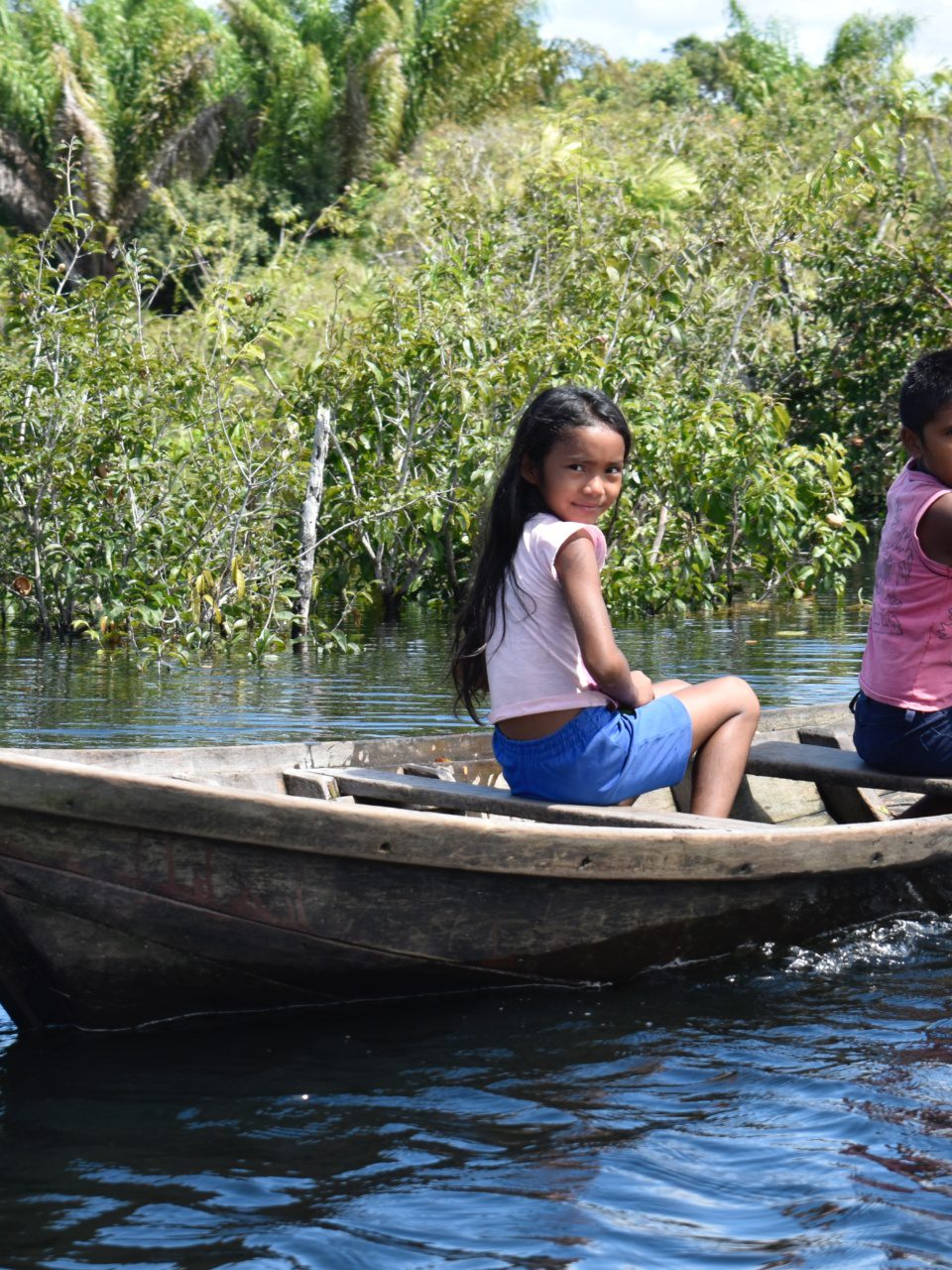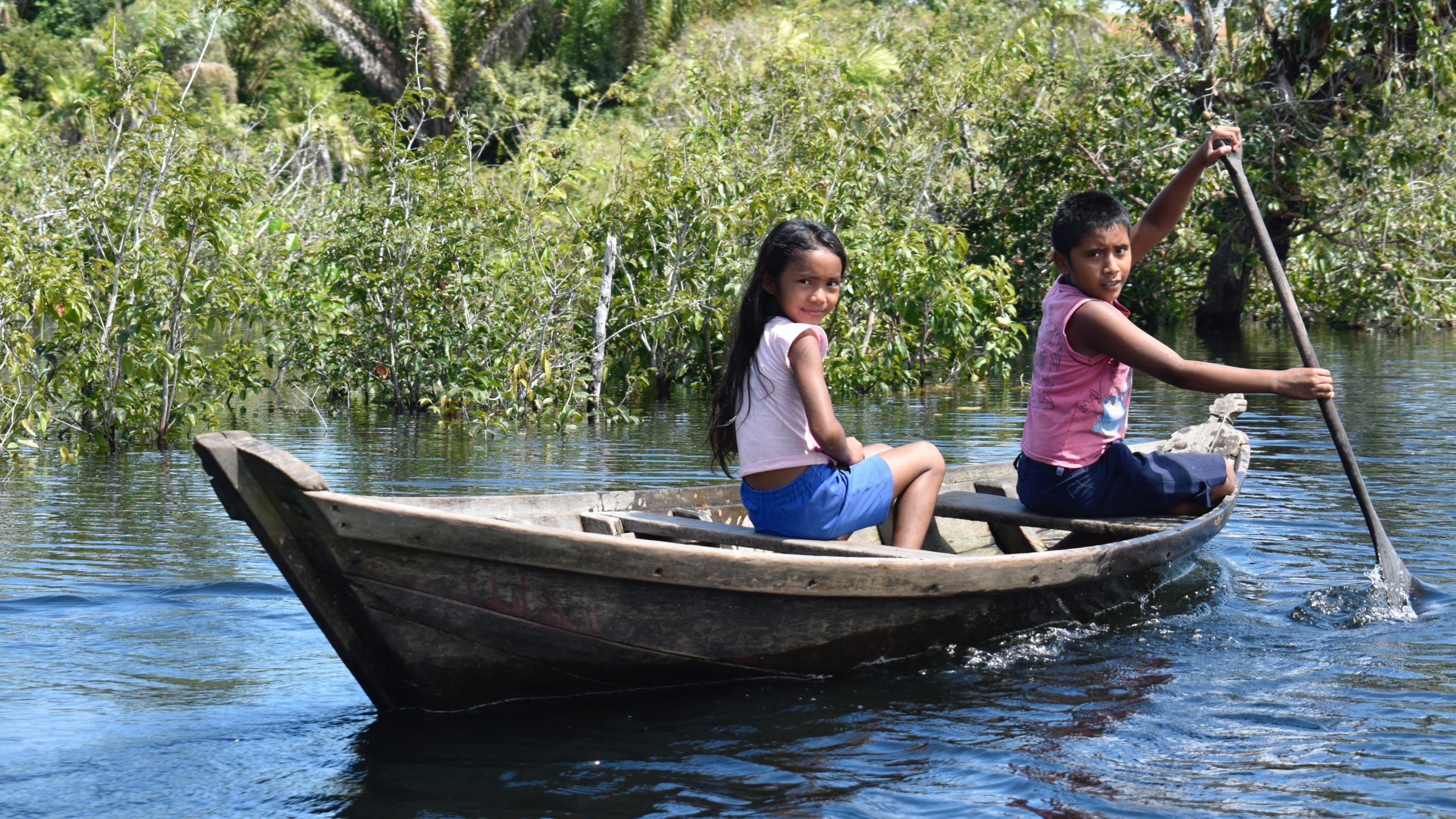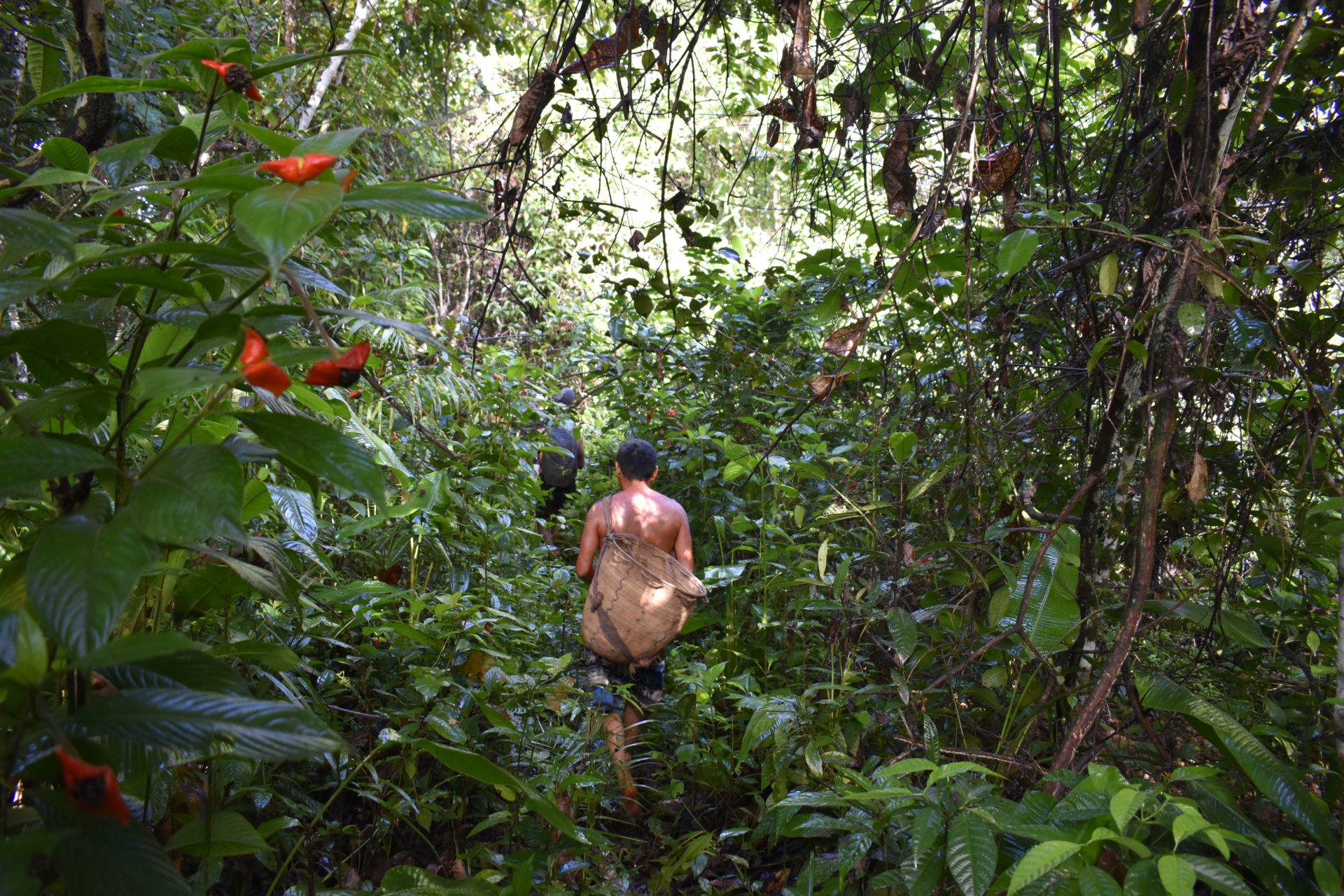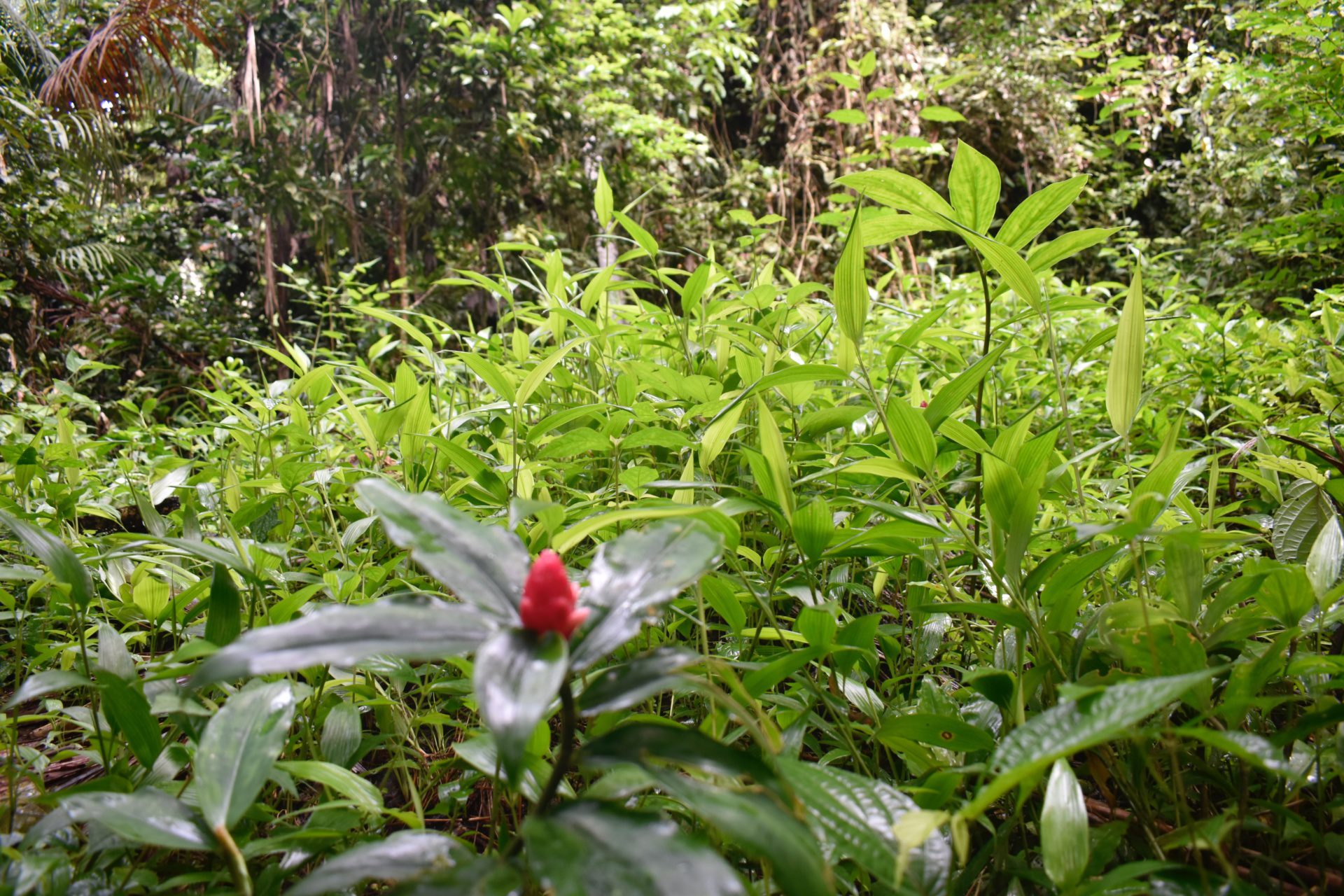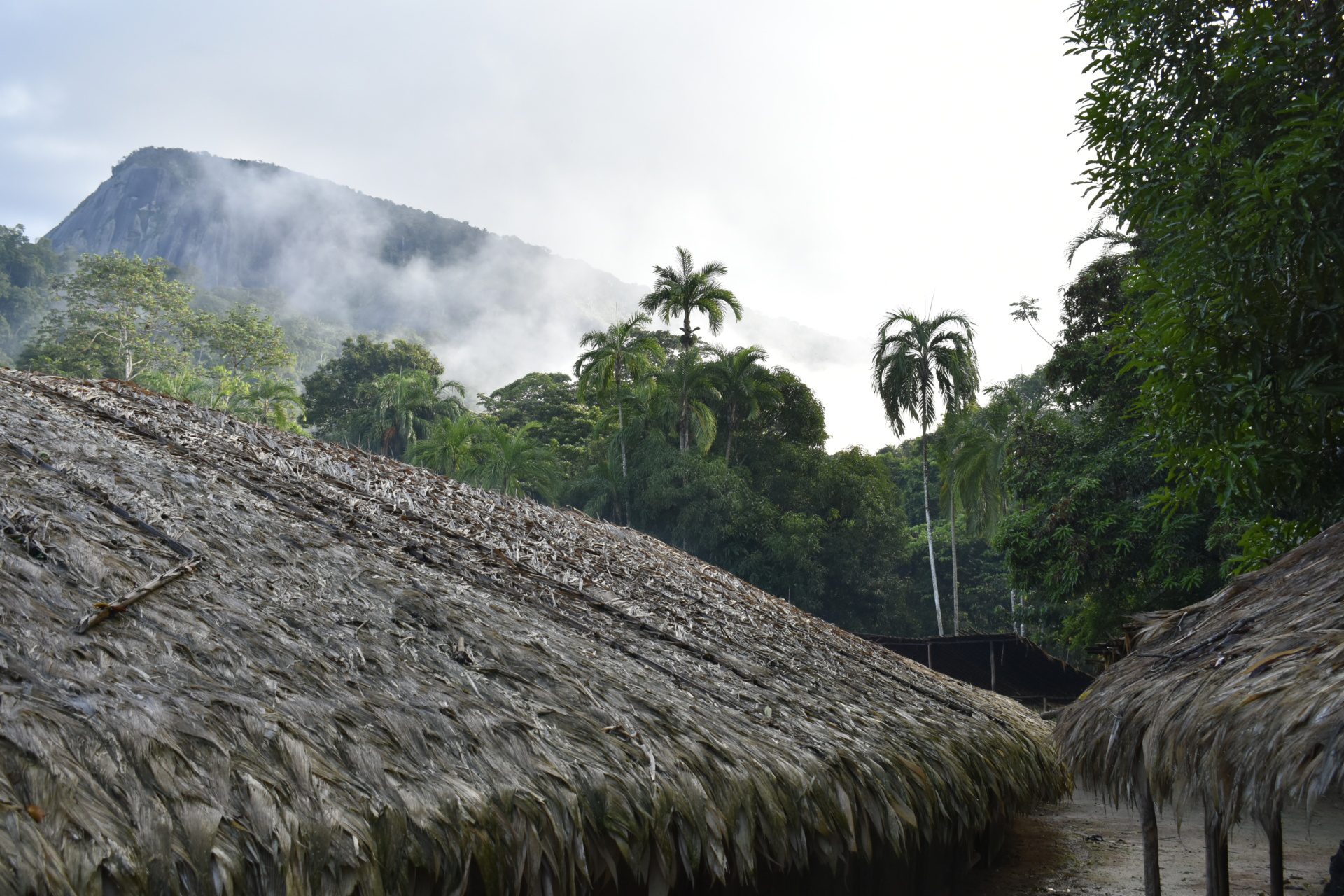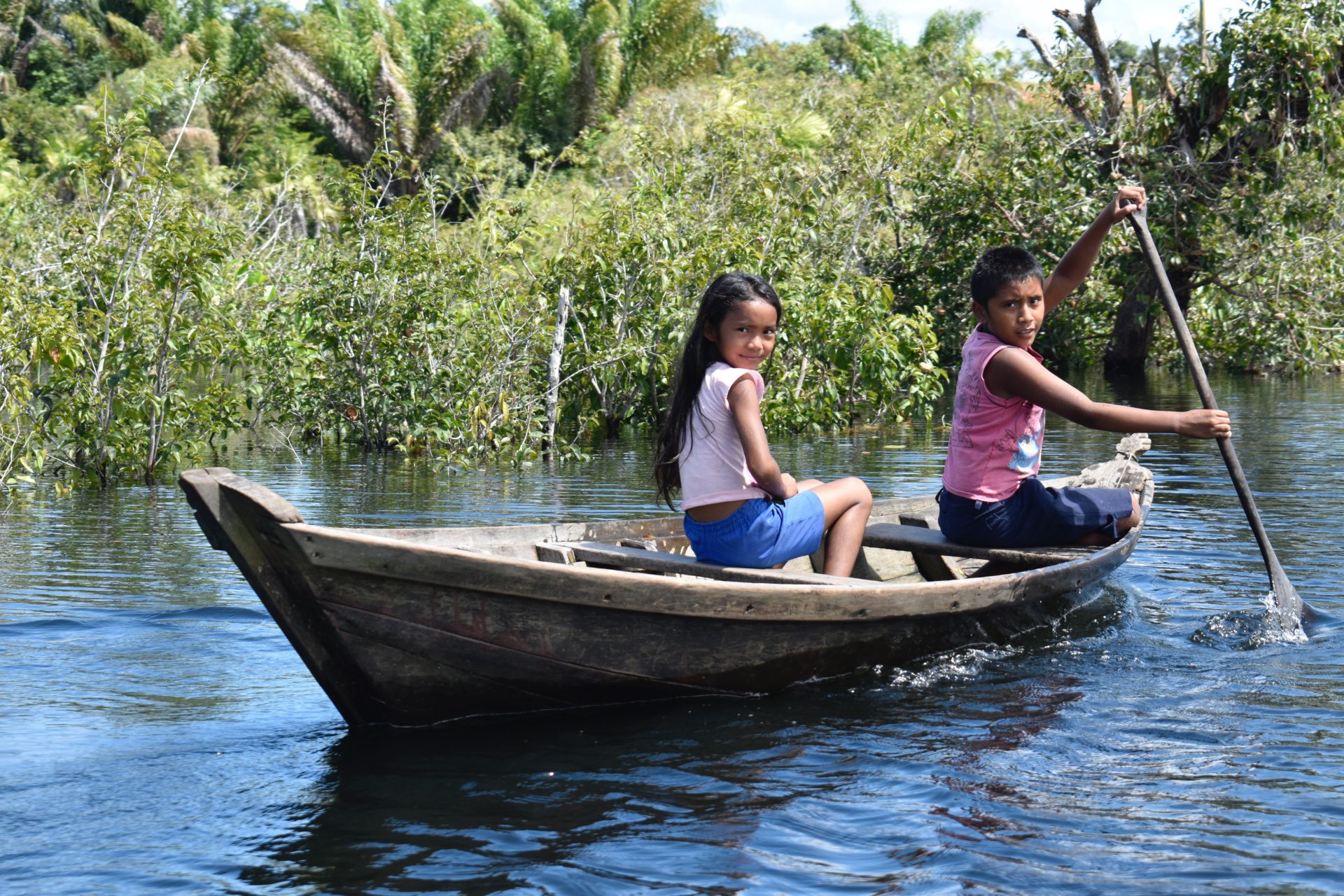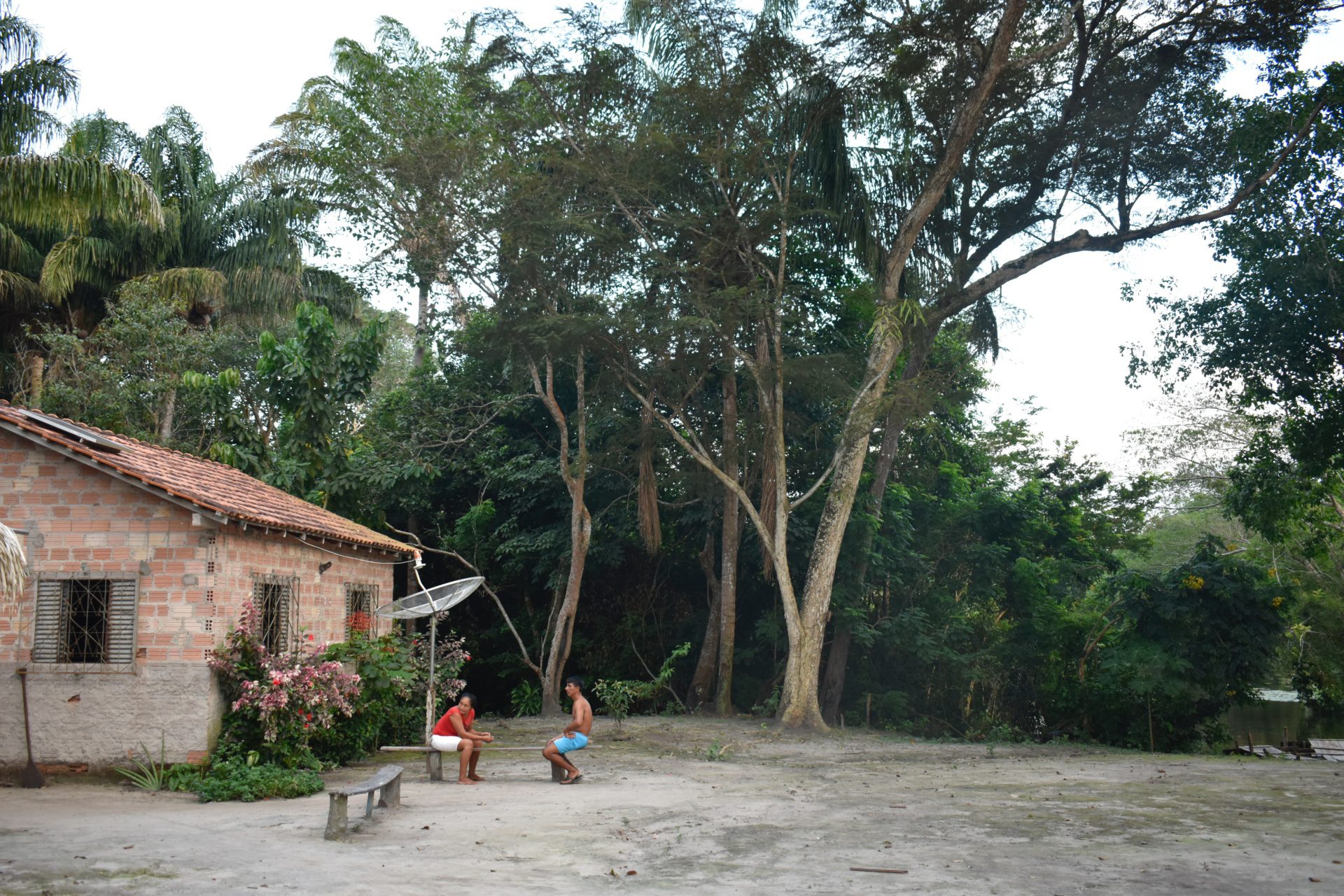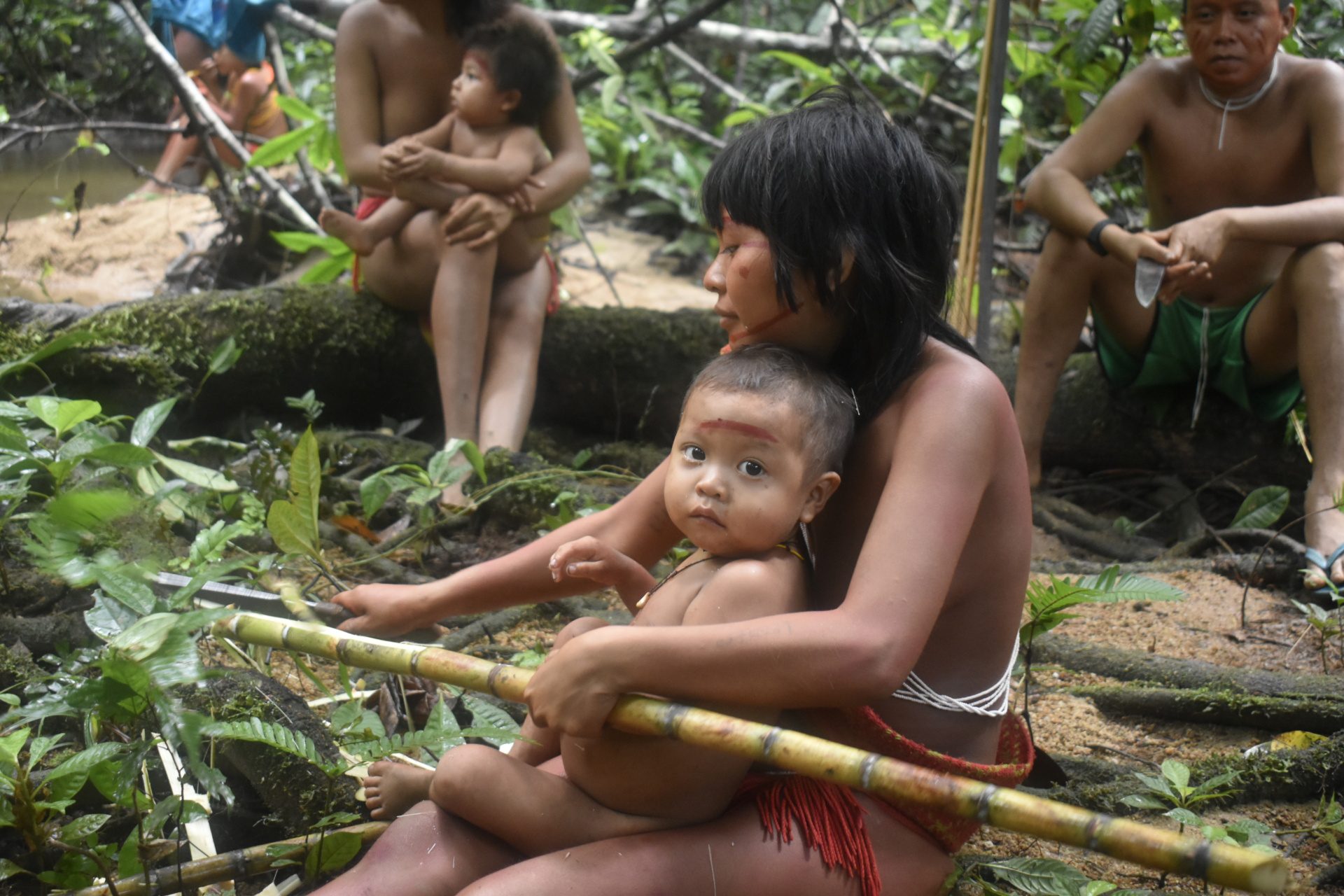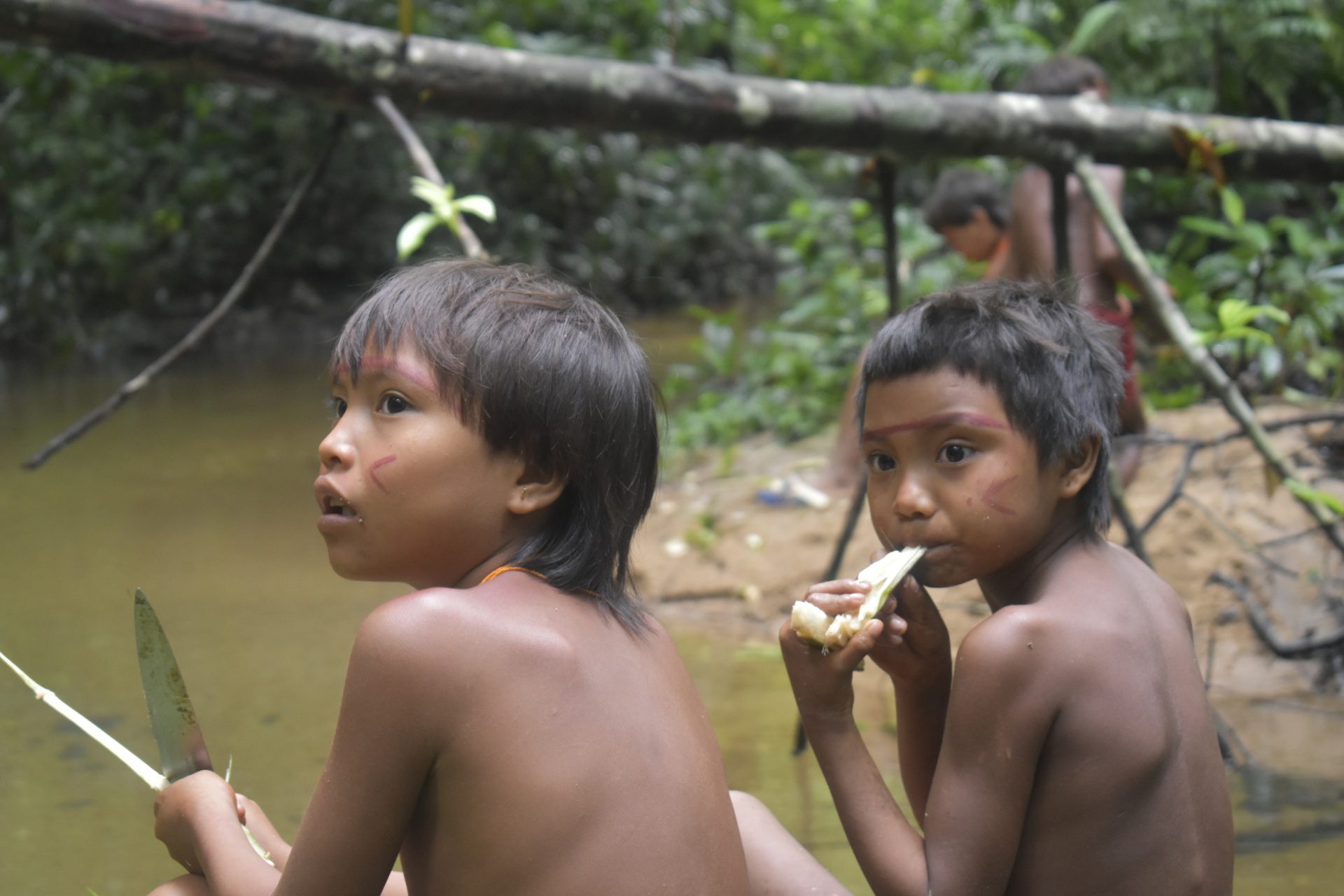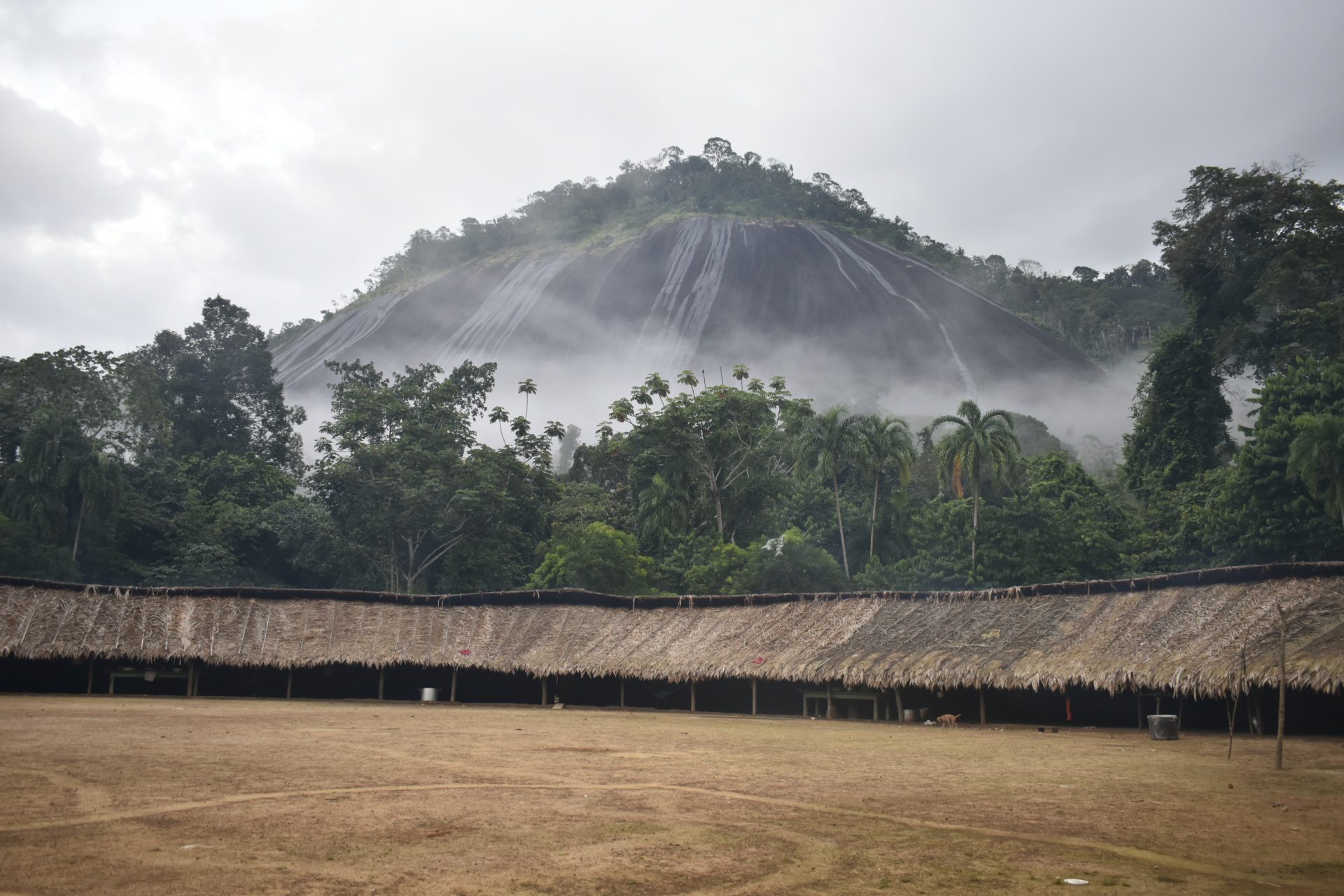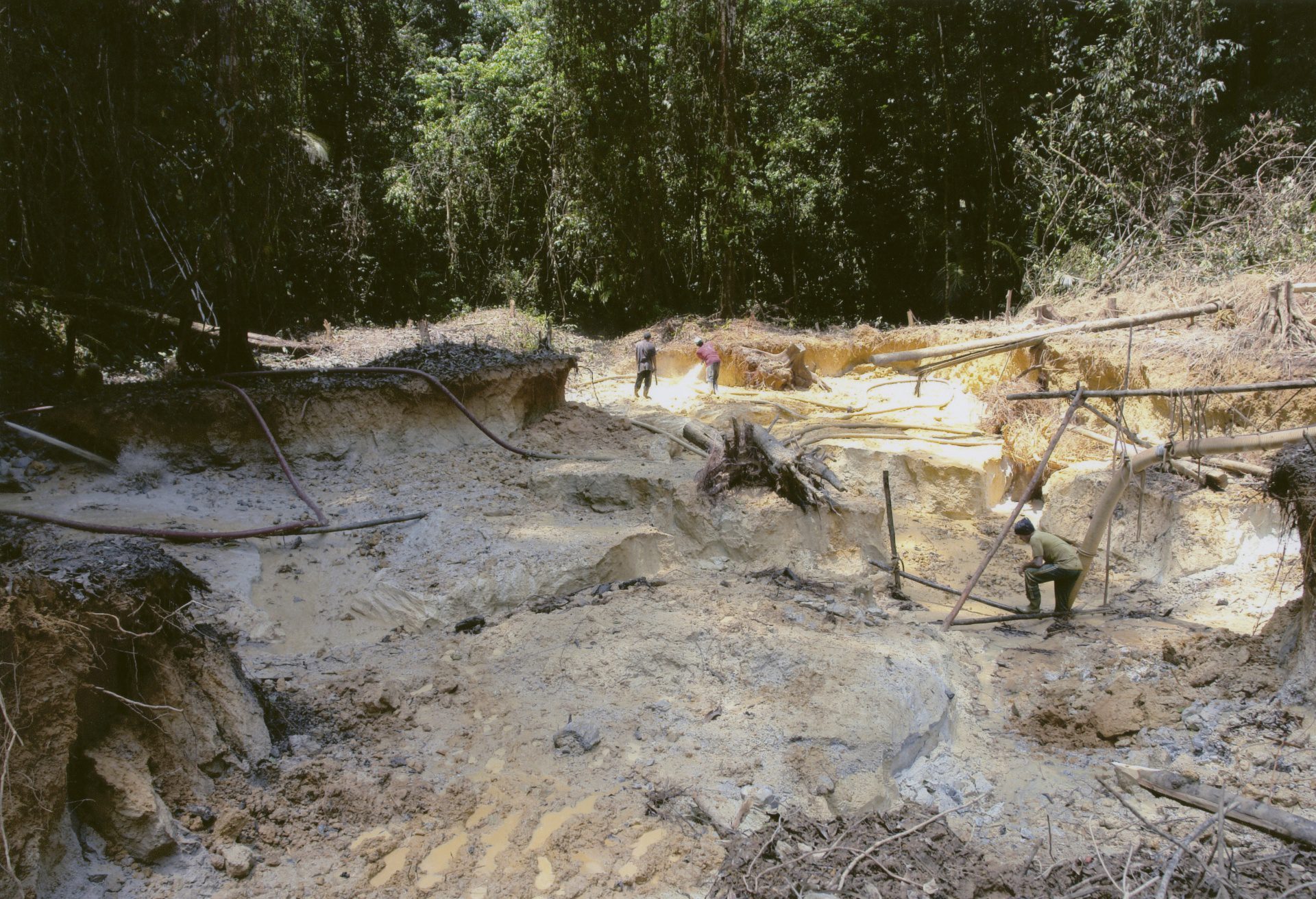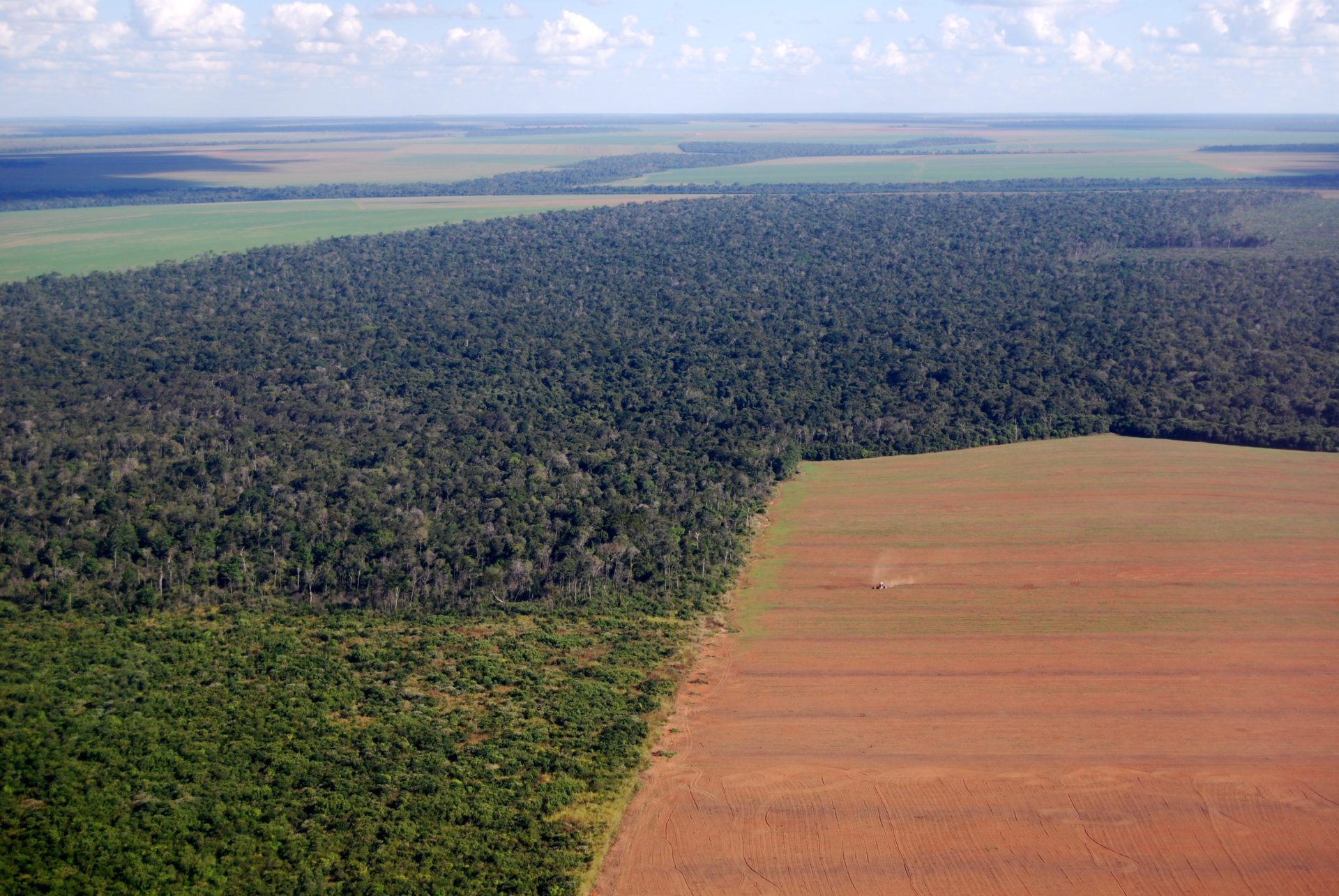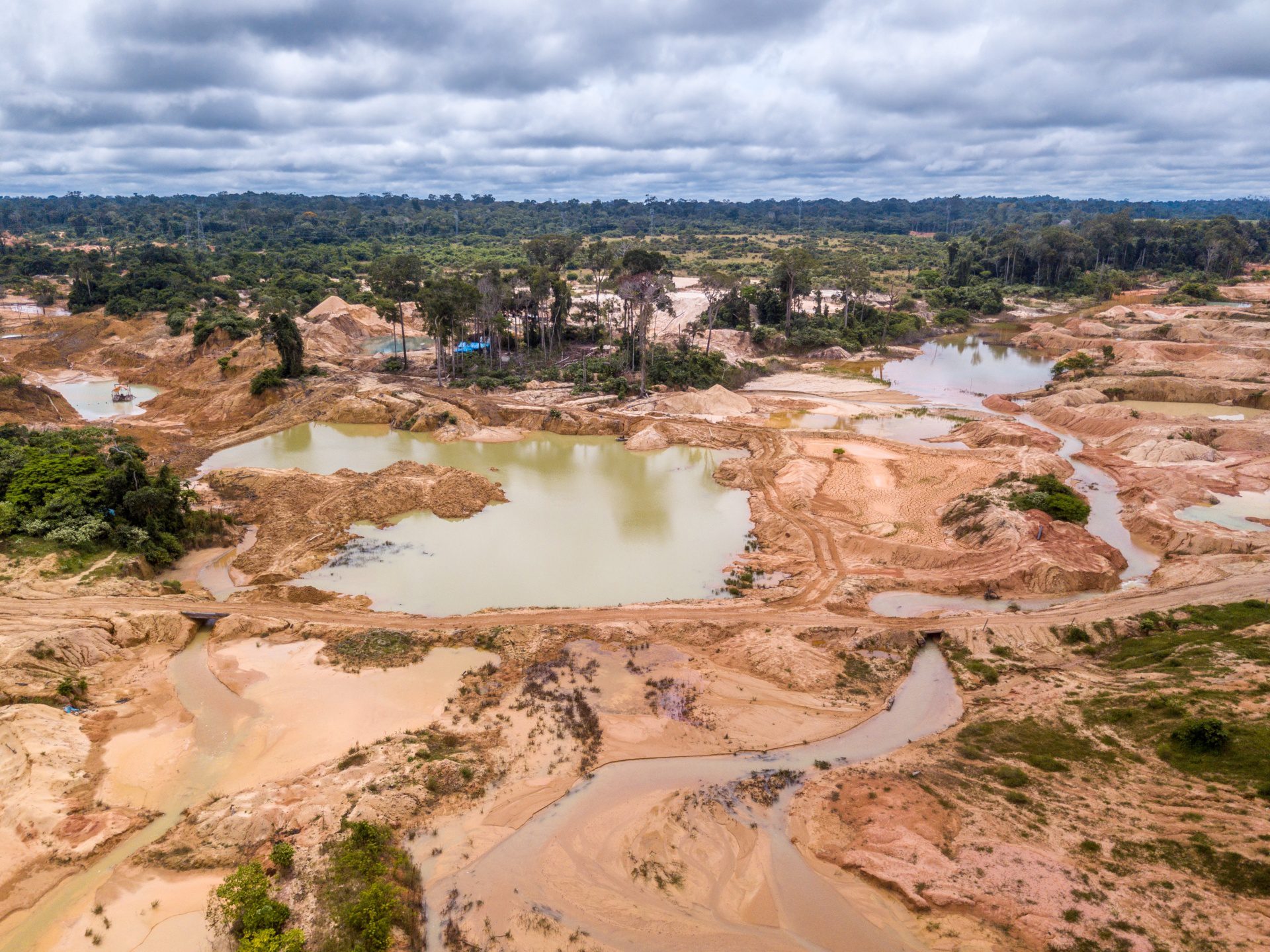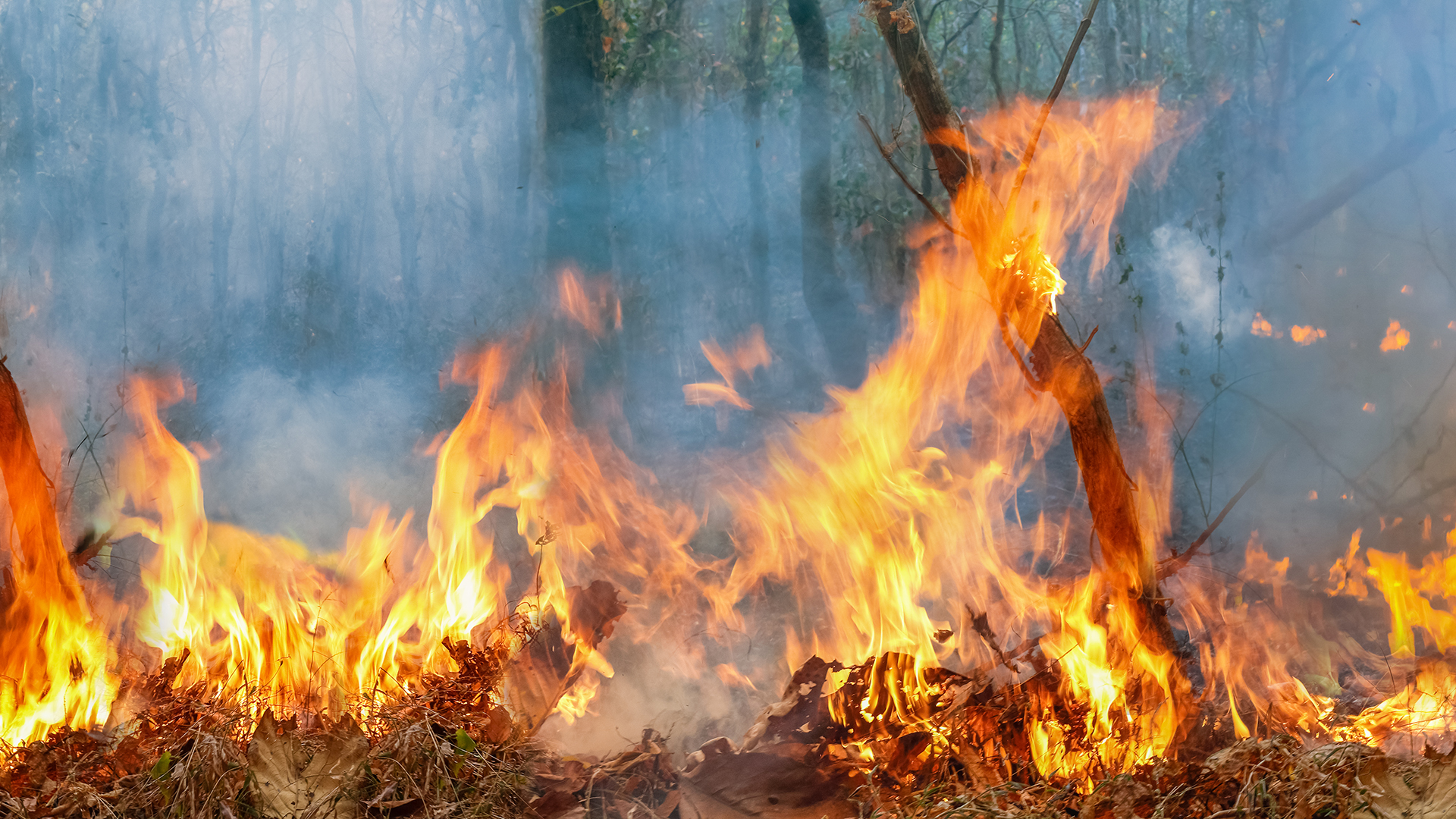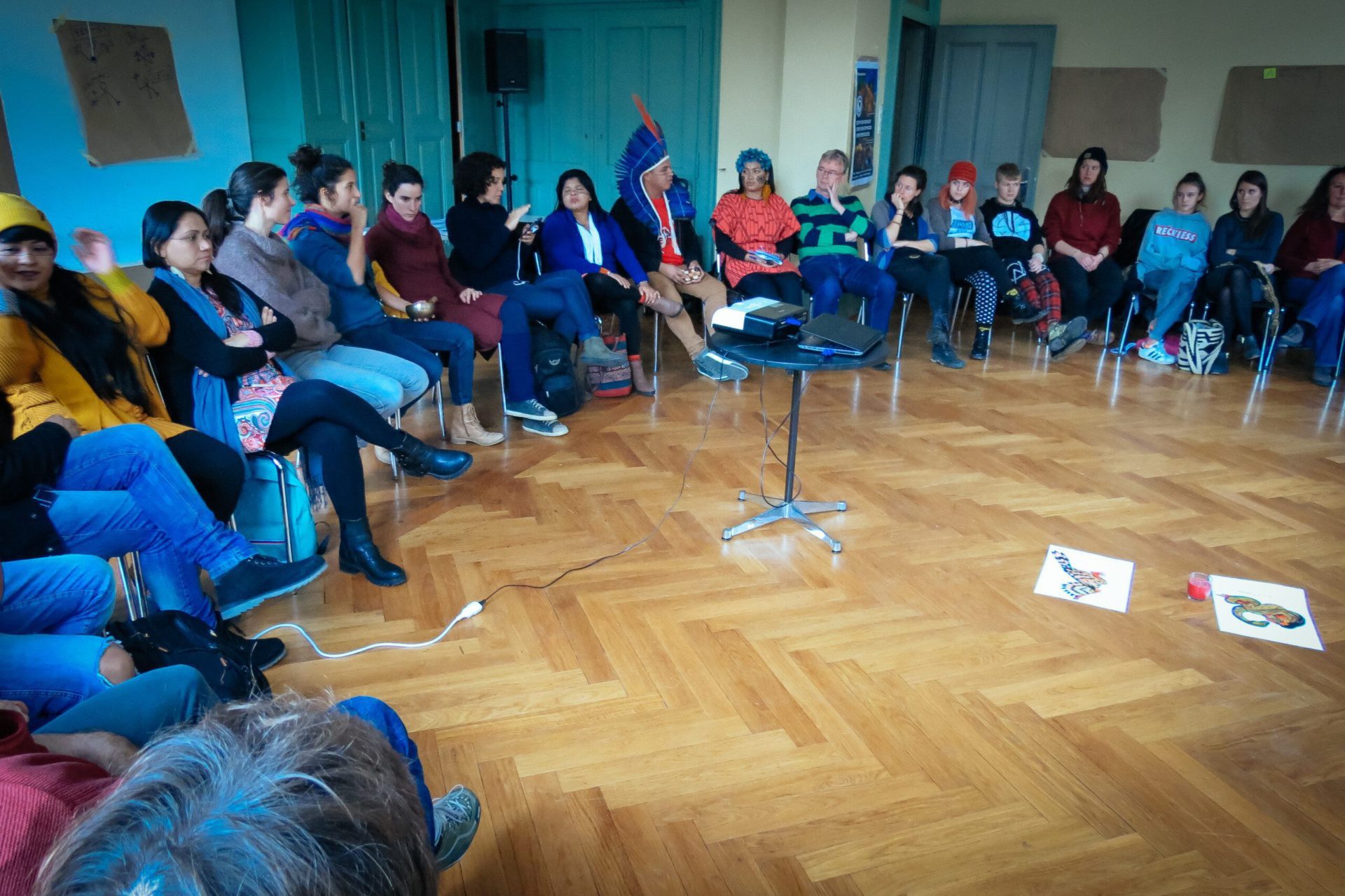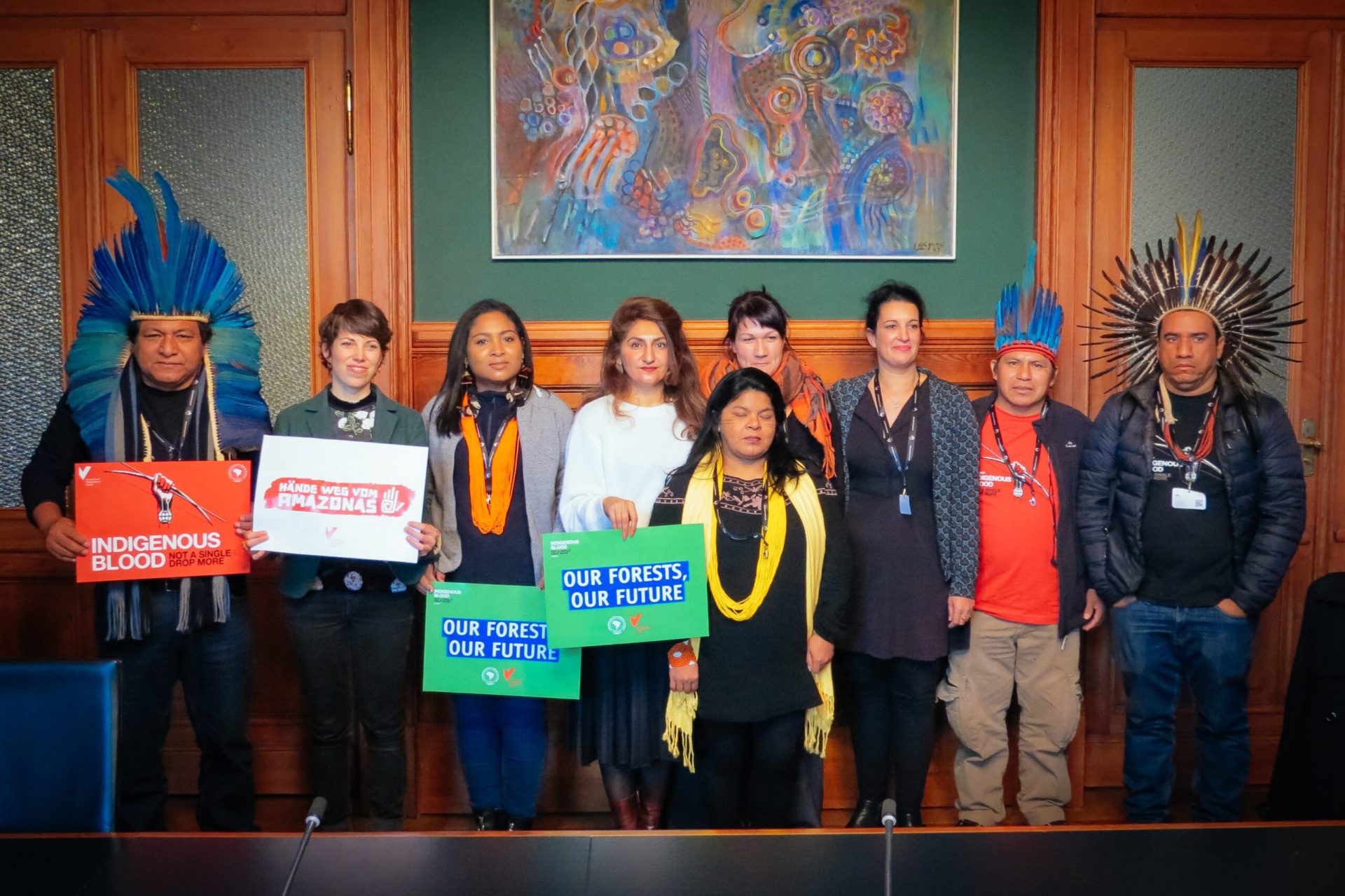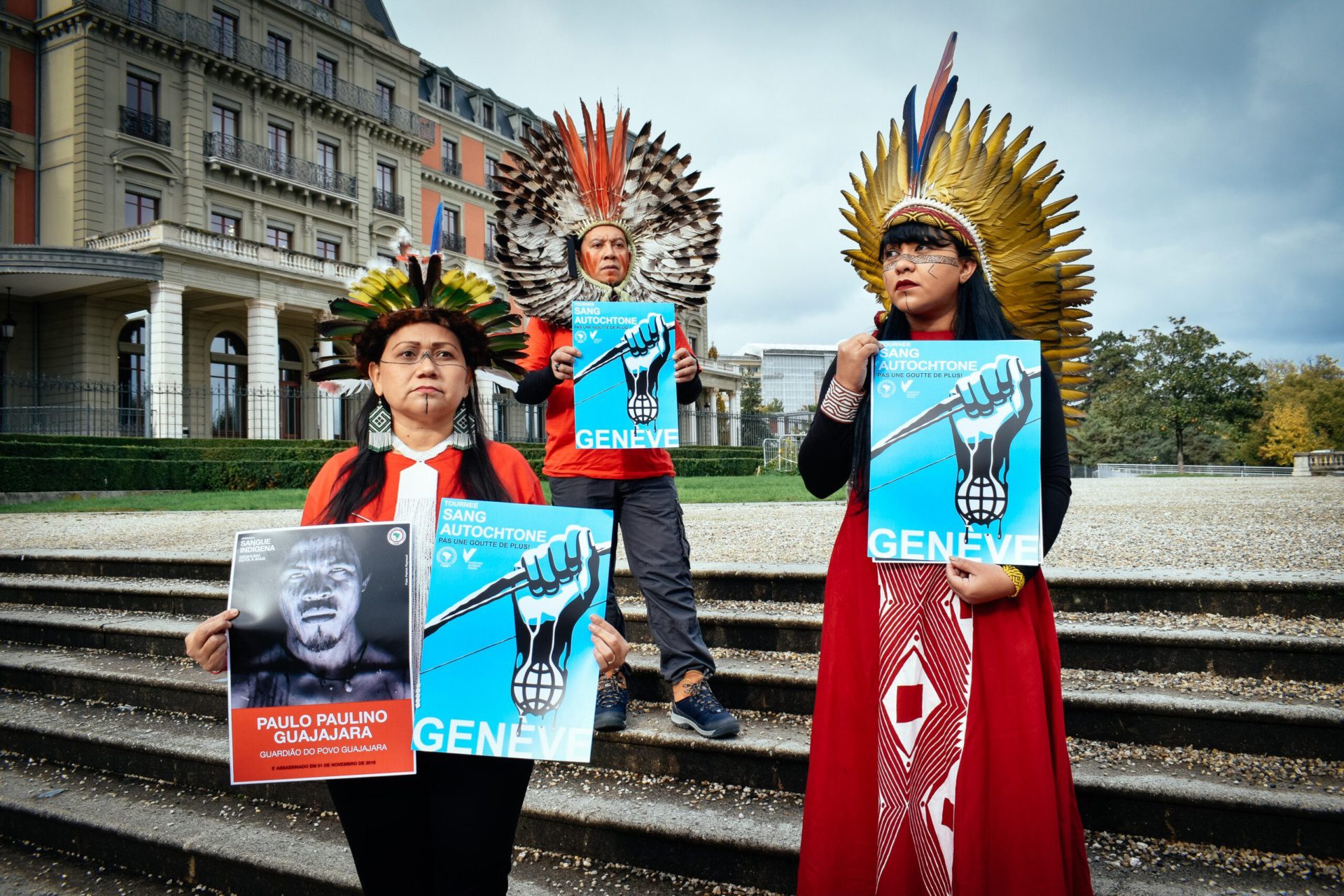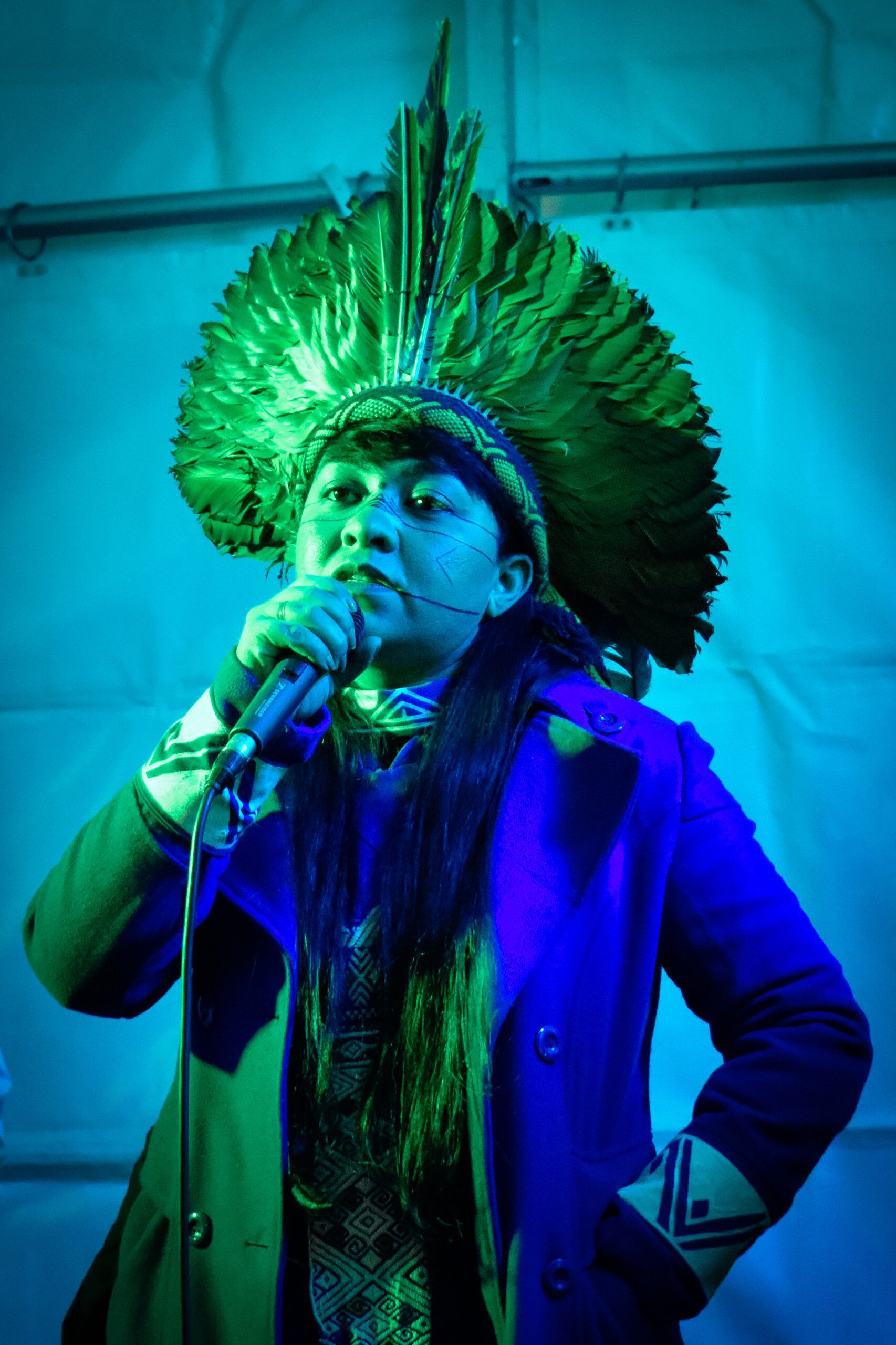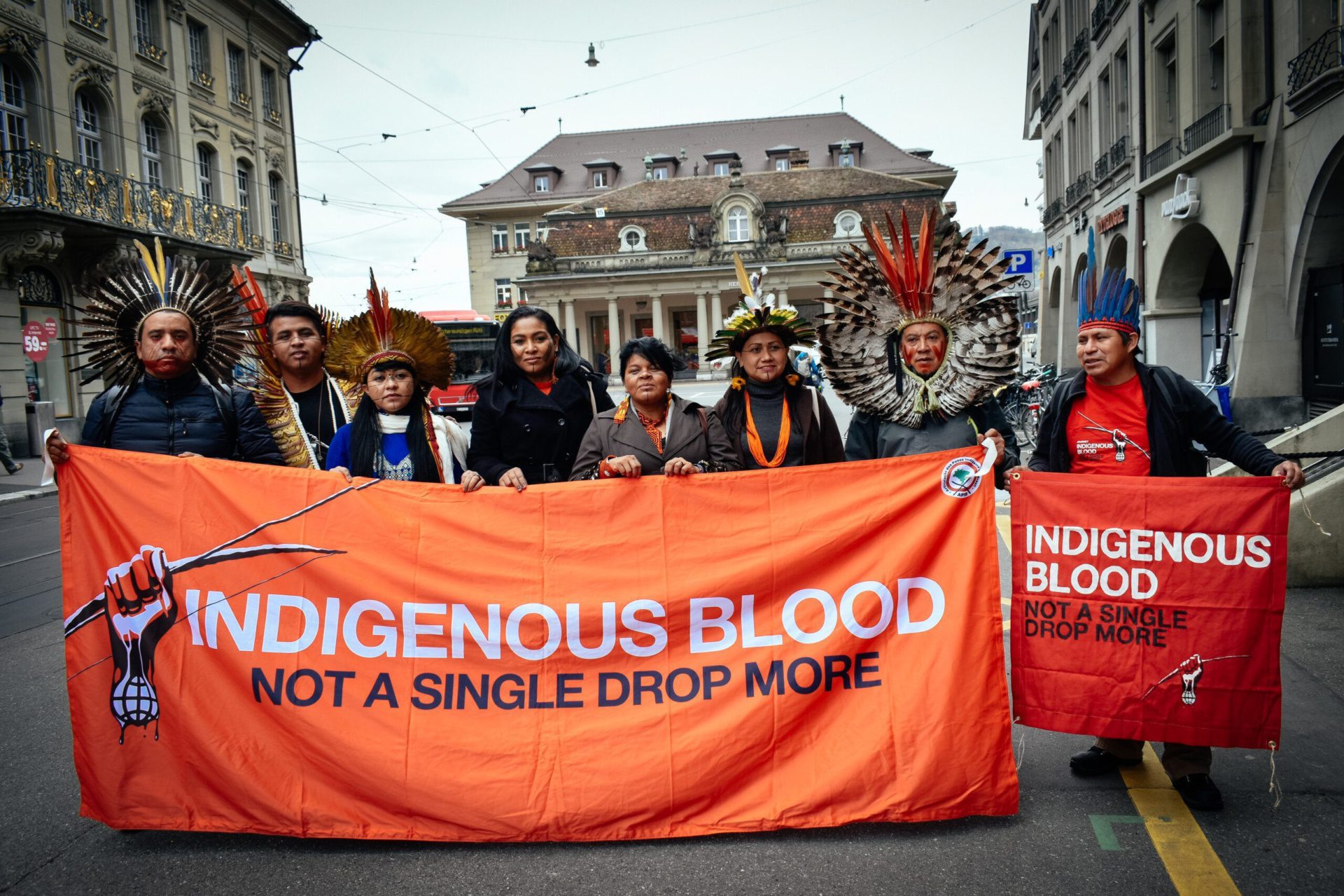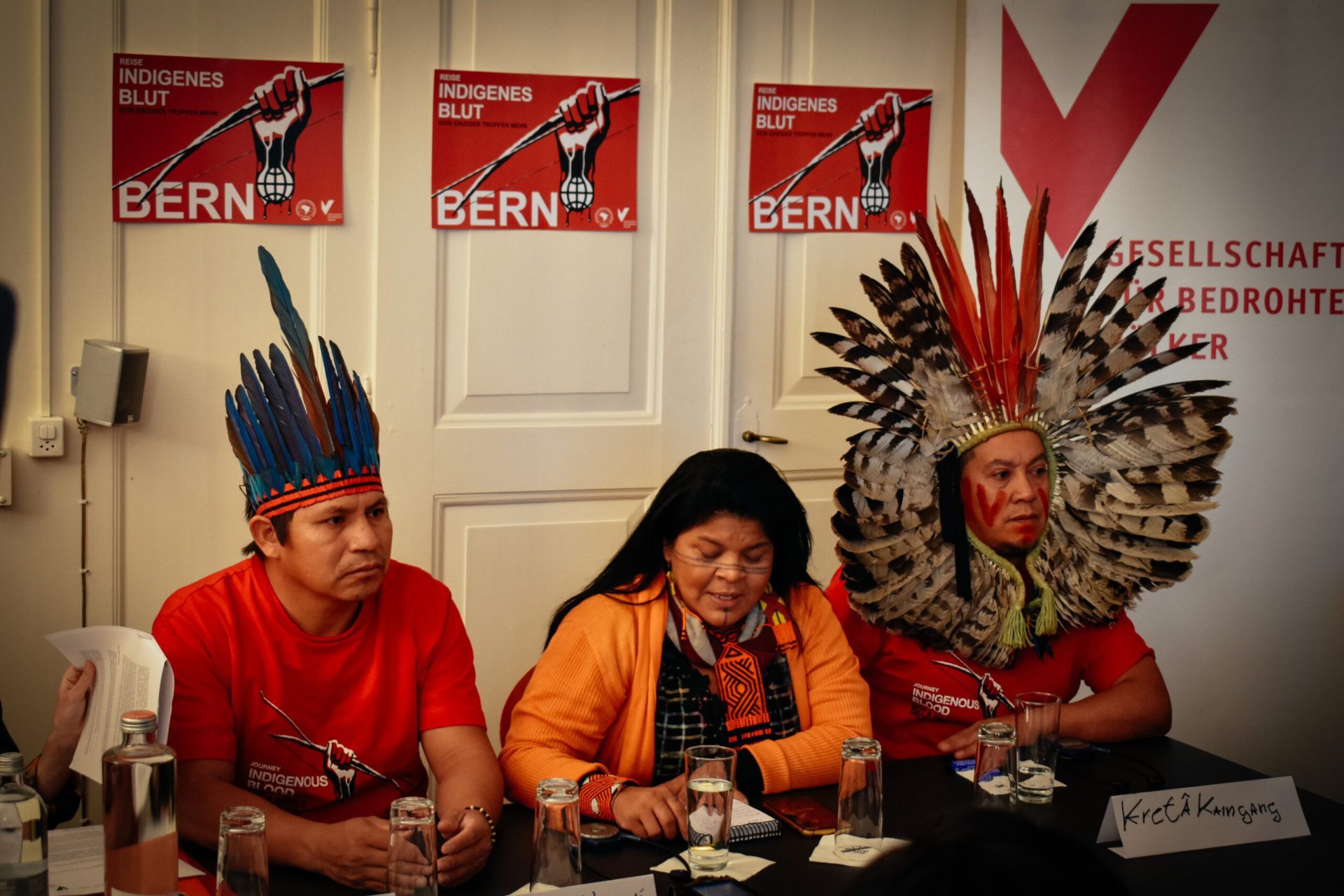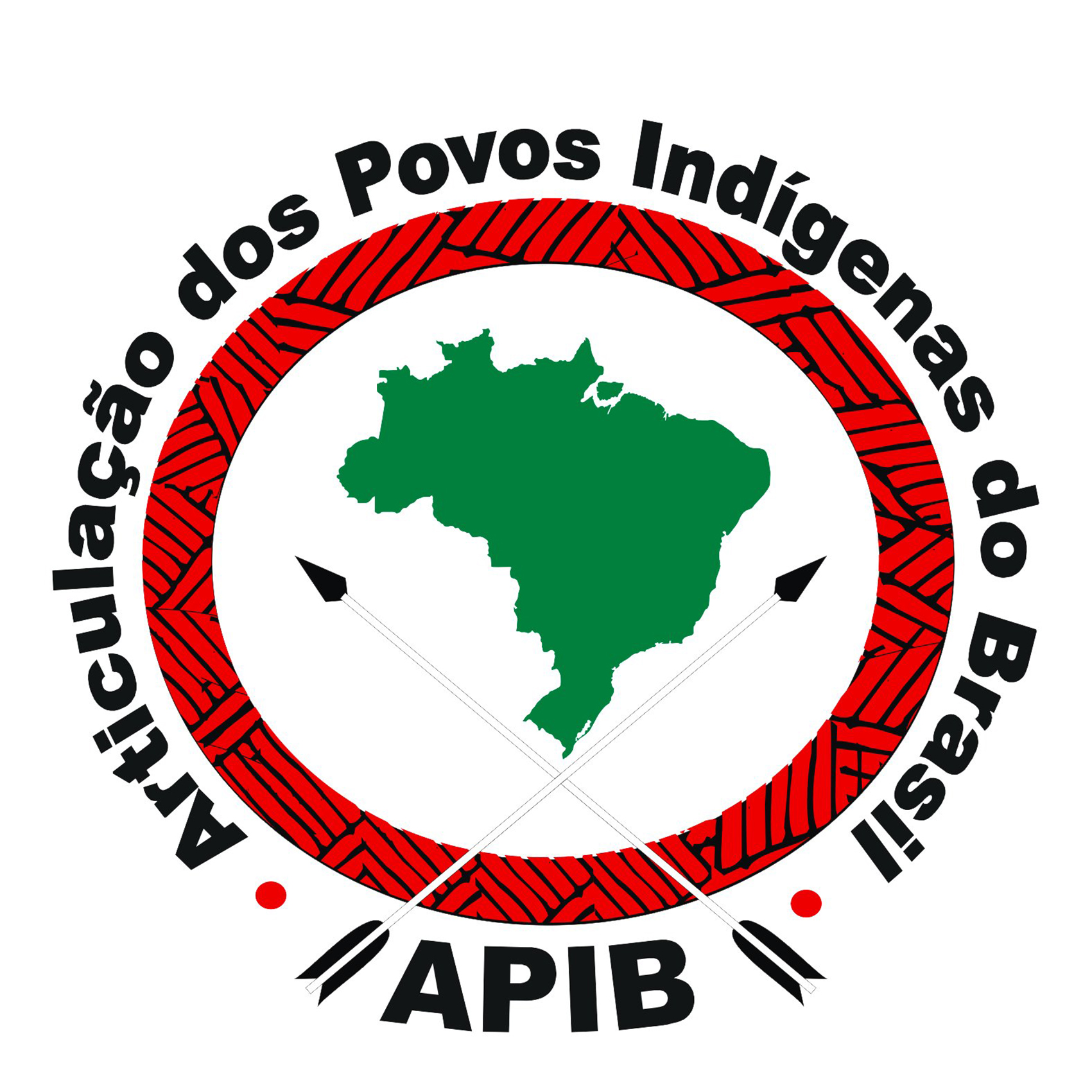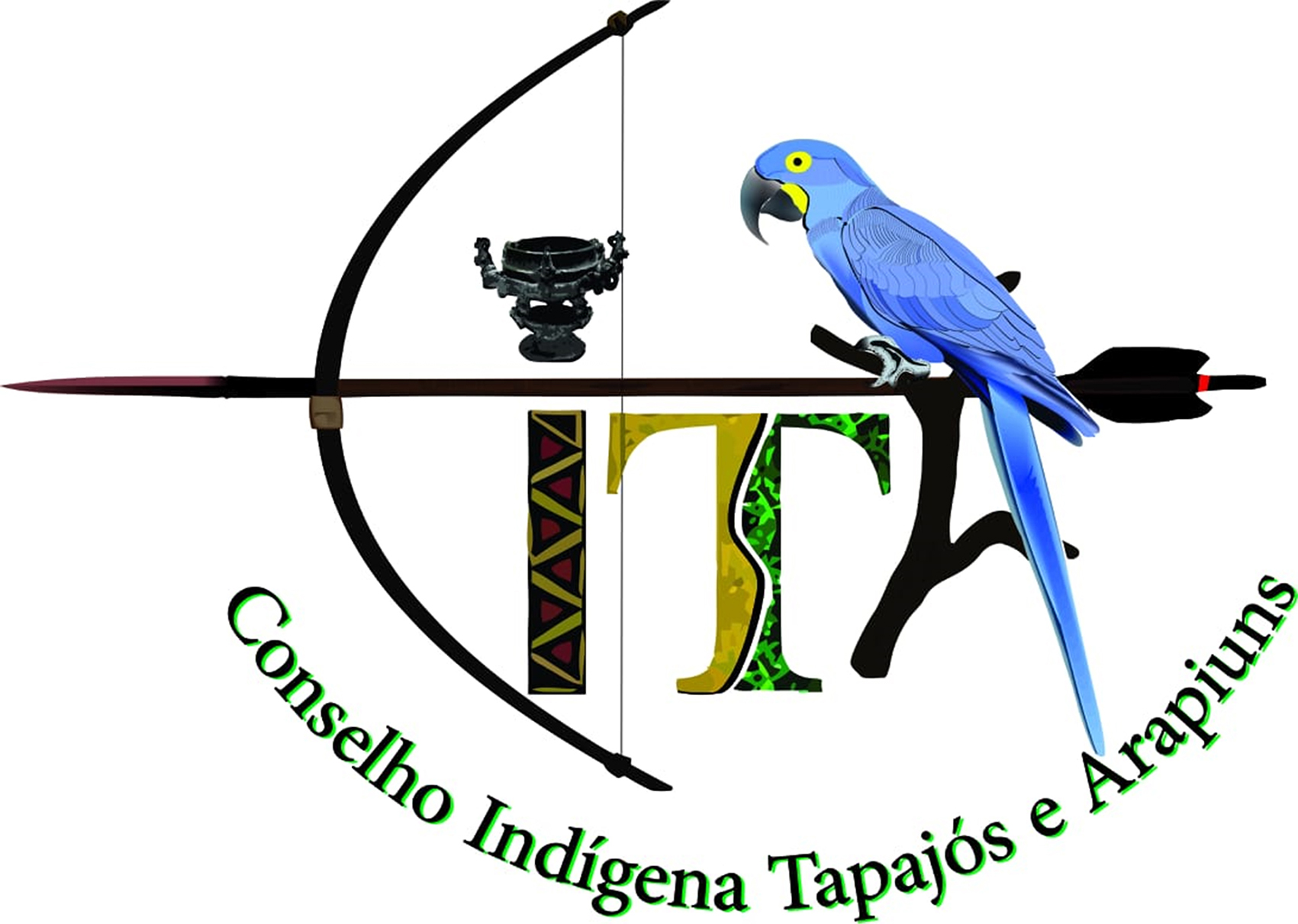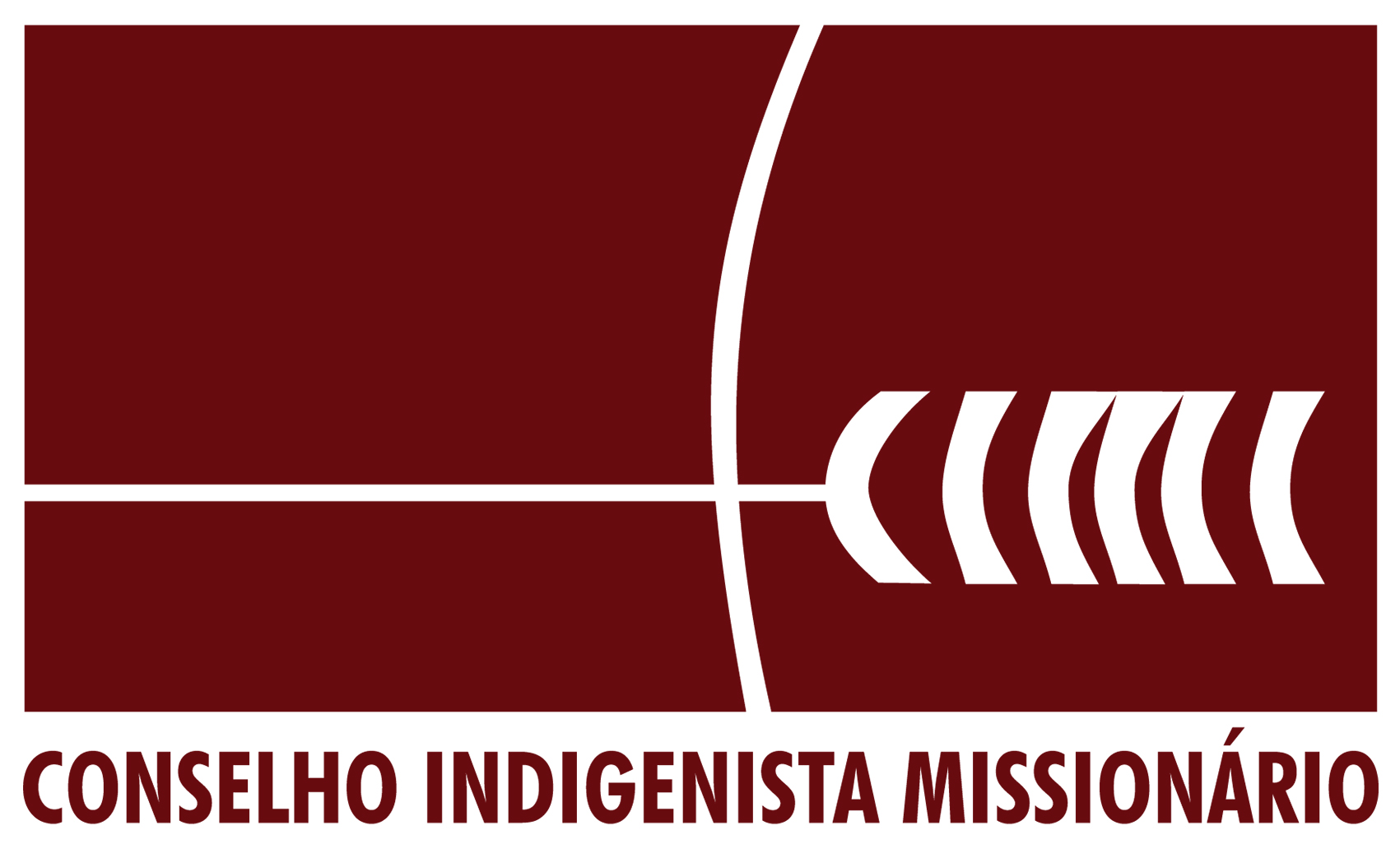Gold from the Brazilian Amazon – Indigenous people confront Switzerland with its responsibility (may 2022)
A gold boom is taking place in the Brazilian Amazon: The high price of gold, partly due to the coronavirus pandemic, is attracting countless gold miners. This has devastating consequences for people and nature, as the miners clear the forest, poison fish and rivers with mercury, and bring disease and crime. The gold hub Switzerland is also involved in the tragedy of the Brazilian Amazon, since about 70 percent of the world’s gold is traded or processed in Switzerland and four of the world’s largest refineries are situated here. Research by journalists Olivier Christe and Fernanda Wenzel shows that 25.4 tonnes of gold, worth over 1.2 billion US dollars, arrived in Switzerland from Brazil in the past year. This puts Switzerland in second place, after Canada, in terms of Brazilian gold exports.
According to the research that Christe and Wenzel conducted, almost five tonnes of gold reached Switzerland from the two Amazon towns of Itaituba and Pedra Branca do Amapari alone in 2020 and 2021 – but its trail has disappeared. “With this gold, Swiss traders put themselves at significant risk of becoming jointly responsible for environmental destruction and human rights violations,” says Julia Büsser, campaign manager at the Society for Threatened Peoples (STP). Investors are also involved in the tragedy of the Amazon region. One example is the Herisau-based company Konwave AG, which invests in Canadian firm Belo Sun Mining. In turn, the latter is planning to build Brazil’s biggest-ever open-pit gold mine by the Xingu River in the state of Pará, only a few kilometres away from indigenous reservations. A new fact sheet published by STP shows the relationships between the gold hubs of Switzerland and Brazil.
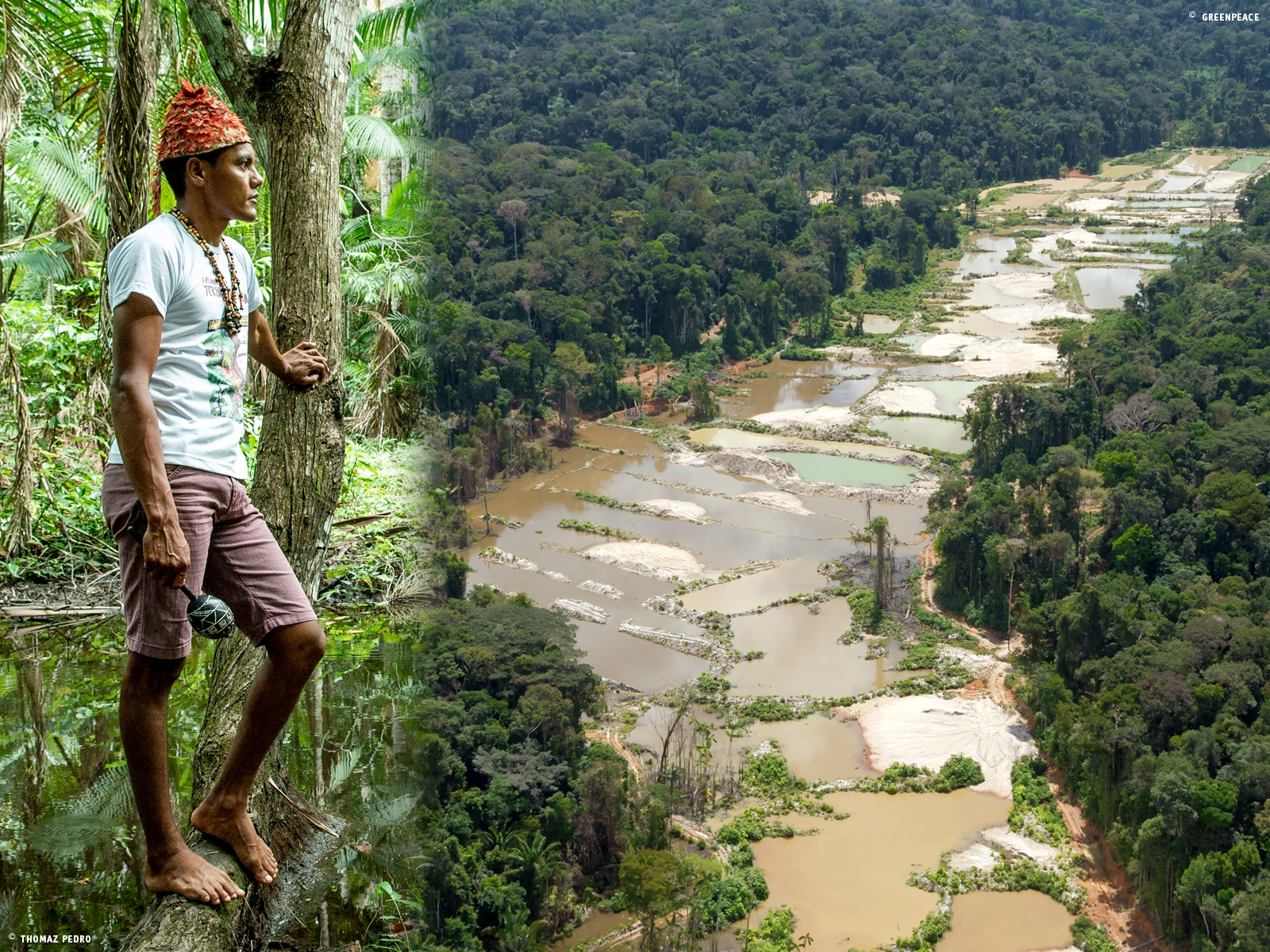
Gold mining in protected and sensitive habitats: A trail of devastation runs through the Munduruku indigenous territory. Photos: Thomaz Pedro / Greenpeace
In order to ensure that the Swiss gold hub is not involved in human rights violations or environmental pollution, the STP believes that binding due diligence audits and full transparency regarding where imported gold comes from are needed. Further, swiss investors must also live up to their responsability and exert influence to ensure that "free, prior and informed consent" (FPIC) is met in projects.
In 2018, in connection with its report ‘Switzerland as a hub for high-risk gold?’, the STP requested the Federal Customs Administration (now: Federal Office for Customs and Border Security) for access to files on the origins of gold imports. First the Federal Information Commissioner, then the Directorate General of Customs wanted to give the information to the STP, but the refineries then went to the Federal Administrative Court, which upheld their complaint on the grounds of tax secrecy. The STP will now take its case to the Federal Court.
At the beginning of May, a delegation comprising representatives of communities affected by gold mining in the Brazilian Amazon travelled to Switzerland, so as to raise awareness of the problem among players in the gold industry and among the public.
Indigenous leader Maria Leusa holds Switzerland accountable.
Dirty Amazon gold: During her visit at the beginning of May 2022, indigenous leader Maria Leusa Munduruku holds Switzerland accountable.
The Brazilian rainforest is in danger – and with it the indigenous communities
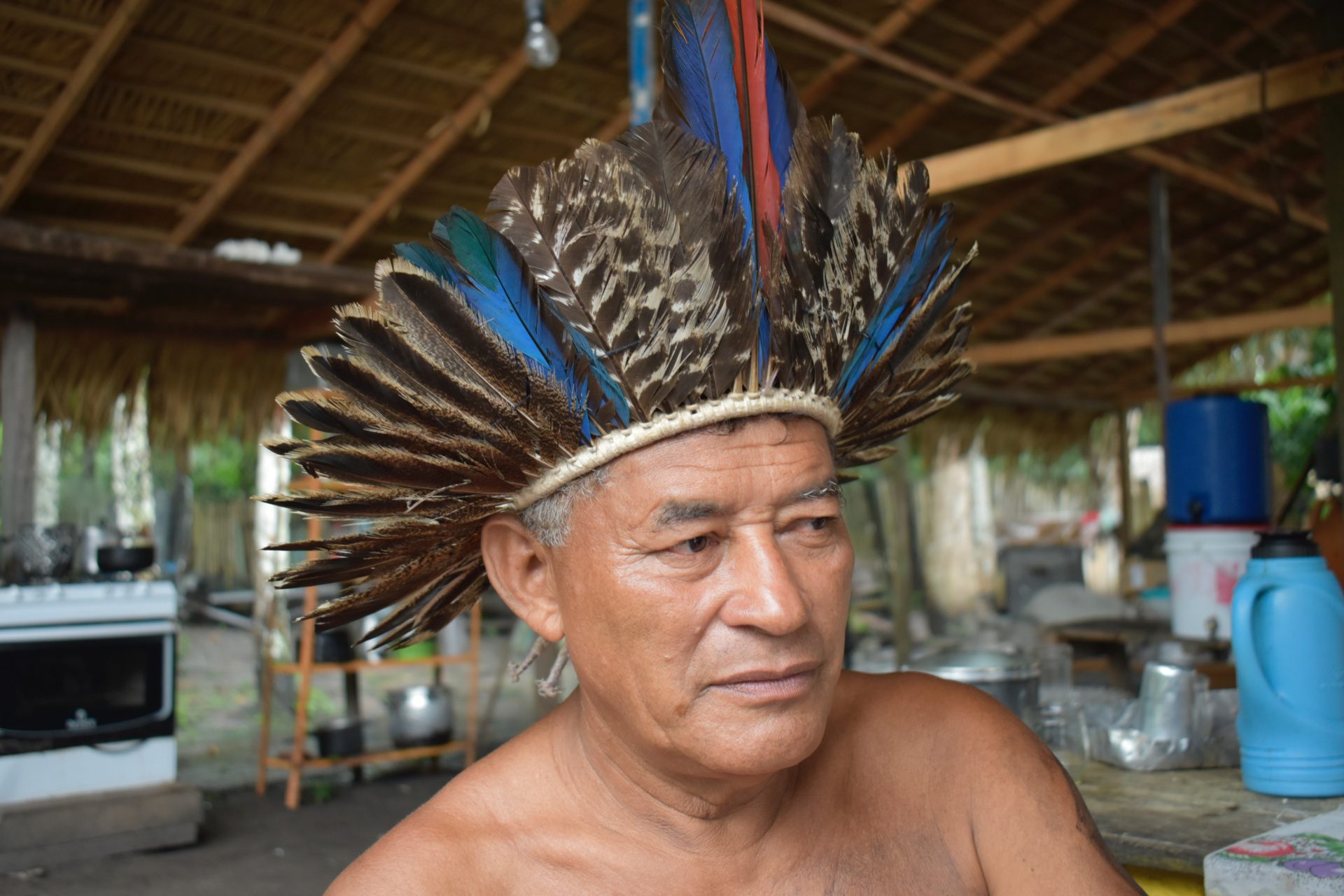
"The Brazilian state does not want to or cannot help us. That is why we now want to take the marking of our tribal country into our own hands. But for this we need means that we do not have. Please help us!" Braz Antonio Marques, chief of the Tupinambá.
The Amazon is the world’s largest tropical rainforest. It is home to Earth’s greatest variety of animals and plants and is one of its largest CO2 stores. This is why the Amazon plays an important role for South America’s water reserves, for biodiversity and for the stability of the global climate. Around 60 per cent of the Amazon region lies in Brazil. Indigenous peoples have inhabited the Amazon for thousands of years – alone in the Brazilian part currently live around 900,000 indigenous people.
The Amazon is in acute danger, particularly in Brazil: In 2019 the destruction increased by 85 percent compared to the previous year - a total of 9166 square kilometres of rainforest were destroyed. The right-wing nationalist president Jair Bolsonaro plans to exploit the Amazon by allowing mining, logging, and agriculture in nature conservation and indigenous areas on a grand scale.
President Bolsonaro intends to crack down on protests by activists and indigenous communities. But the indigenous communities are continuing their efforts to protect their territories and their rights, even under difficult conditions.
In April 2019, thousands of indigenous people demonstrated in Brasilia for their rights and the environment.
Indigenous peoples' views on planned mega-infrastructure projects in Tapajós
Burning forests and deforestation, displaced indigenous communities: these are the impacts of the production of soya and other agricultural products in the Brazilian Amazon. Now, a railway and a waterway are planned to transport the goods abroad even faster.
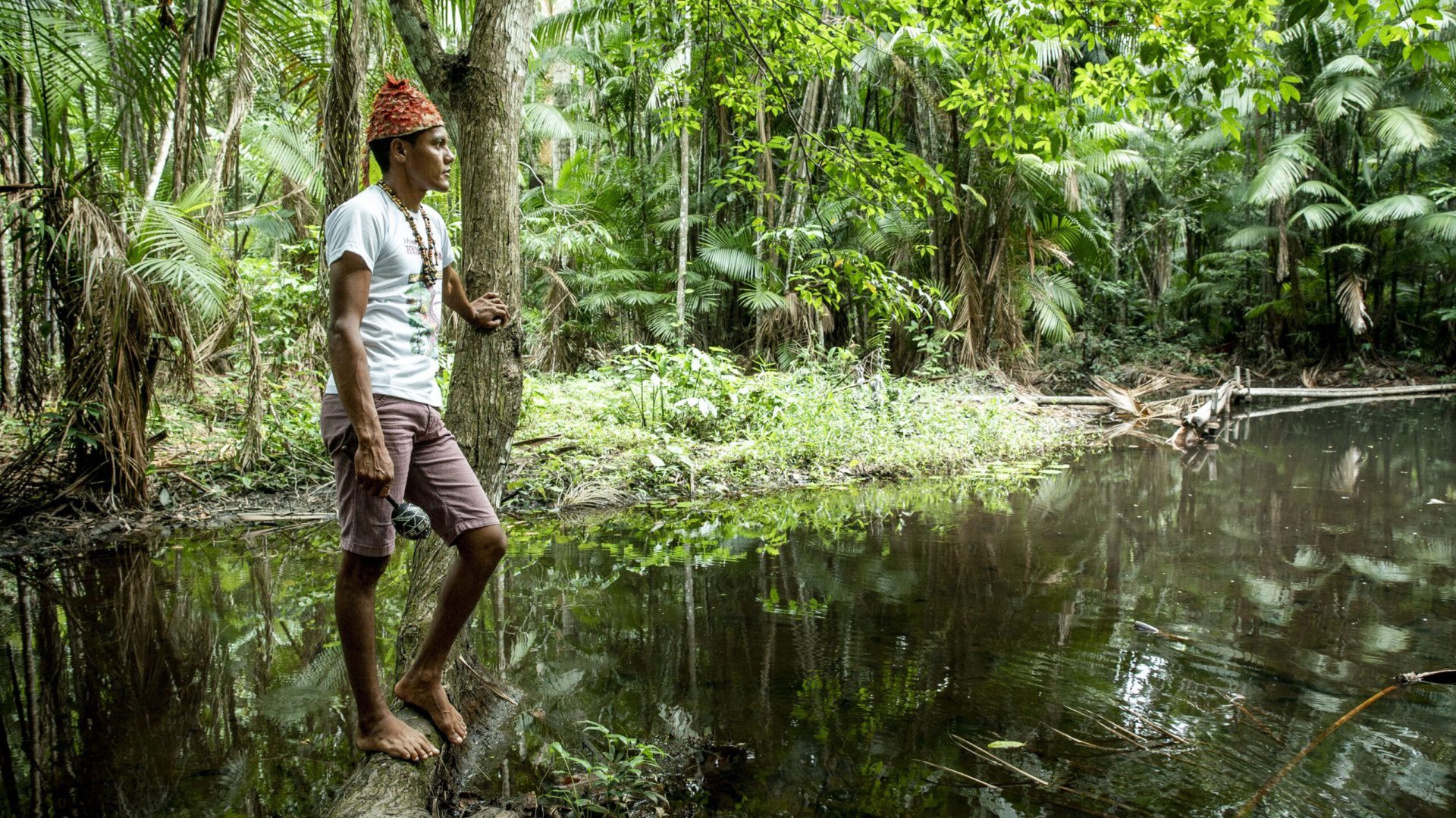
Huge infrastructure projects in Tapajós aim to speed up the export of soya and other products – at the expense of the indigenous communities living there. Photo: Thomaz Pedro
In particular, the indigenous communities would be affected by the projects. "These projects will cause nothing but destruction for us. We will lose everything: our culture, our language, our customs”, states Juarez Munduruku, leader of the Sawre Muybu village. However, the directly affected indigenous population has no say in the planning of the projects. This is stated in a report published by the Society for Threatened Peoples (STP). This is in disregard for the rights of indigenous communities to free, prior and informed consent (FPIC).
The STP's research also shows: By financially participating in companies interested in the construction of the projects, Swiss banks are also guilty of the exploitation of the Amazon. Finde out more about the views of the indigenous peoples on the planned mega-infrastructure projects in the Amazon and what the STP demands from financial institutions:
Film "Threatened Tapajós" – a film by the STP
Indigenous people talk about the exploitation of the Amazon and the impact this has on their lives. They also discuss the planned infrastructure projects in Tapajós. The Ferrogrão railway and the Tapajós water project are expected to transport grains such as soya abroad even faster and cheaper - at the expense of the rainforest and indigenous communities. Watch the film and learn more about the life of indigenous peoples in the Amazon!
The Society for Threatened Peoples supports indigenous communities in Brazil in their efforts to protect their territories, and their push for self-determination and the observance of human rights. Help us! After all, the future of the rainforest and its people is our future, too!
How indigenous communities protect the Amazon
The indigenous reserves are hugely important for the protection of the Brazilian Amazon. More than half of the intact Amazon is located either in nature reserves or in indigenous territories. Until now, indigenous reservations have been considered bulwarks against intruders as they have been protected by the Brazilian constitution. But to date, only 486 of the 722 indigenous territories are officially registered, and President Jair Bolsonaro has no intention of registering any new indigenous reserves.
Video: Land rights for the Tupinambá
Where the state is failing, indigenous communities want to take the protection of their territories into their own hands. In the Tapajós basin, for example, the community of indigenous Tupinambá and Mundurukú are peacefully taking a stand by marking their land. Members of the tribe go out into the rain forest in groups every two weeks to mark their territory with the help of colour, GPS and machetes. Thanks to this hard and time-consuming work, they will then be able to claim the land titles, to which they have a legal right, with the authorities.
But marking the boundaries is expensive, time-consuming and tedious, which is why the Society for Threatened Peoples is supporting the Tupinambá and Mundurukú communities in this process.
This is how the STP supports indigenous communities — help us!
The Society for Threatened Peoples supports indigenous communities in Brazil in their struggle for their tribal land, self-determination and the observance of human rights.
- Demarcations: in the Tapajós basin, the STP helps the communities of indigenous Tupinambá and Mundurukú mark their territories. This is the basis for official registration of the area as an indigenous reserve.
- Switzerland’s responsibility: together with other organisations, the STP calls on Switzerland to assume its responsibility for the preservation of the Amazon. Economic relations and, in particular, a free trade agreement with the Mercosur states must not be concluded at the expense of environmental protection, sustainability and indigenous rights.
- Empowerment: the STP promotes exchange and networking among indigenous communities in Brazil, e.g., with financial support or workshops aimed at exchanging knowledge. For example, the STP supports communities so that they are able to hold their annual meetings, network and have a strong presence by working together.
- Accompanying delegations: the STP accompanies indigenous delegations in Switzerland so that they can voice their concerns with Swiss decision makers and the UN in Geneva.
- Alternatives to illegal gold mining: The STP supports a cocoa project that gives young Yanomami a perspective
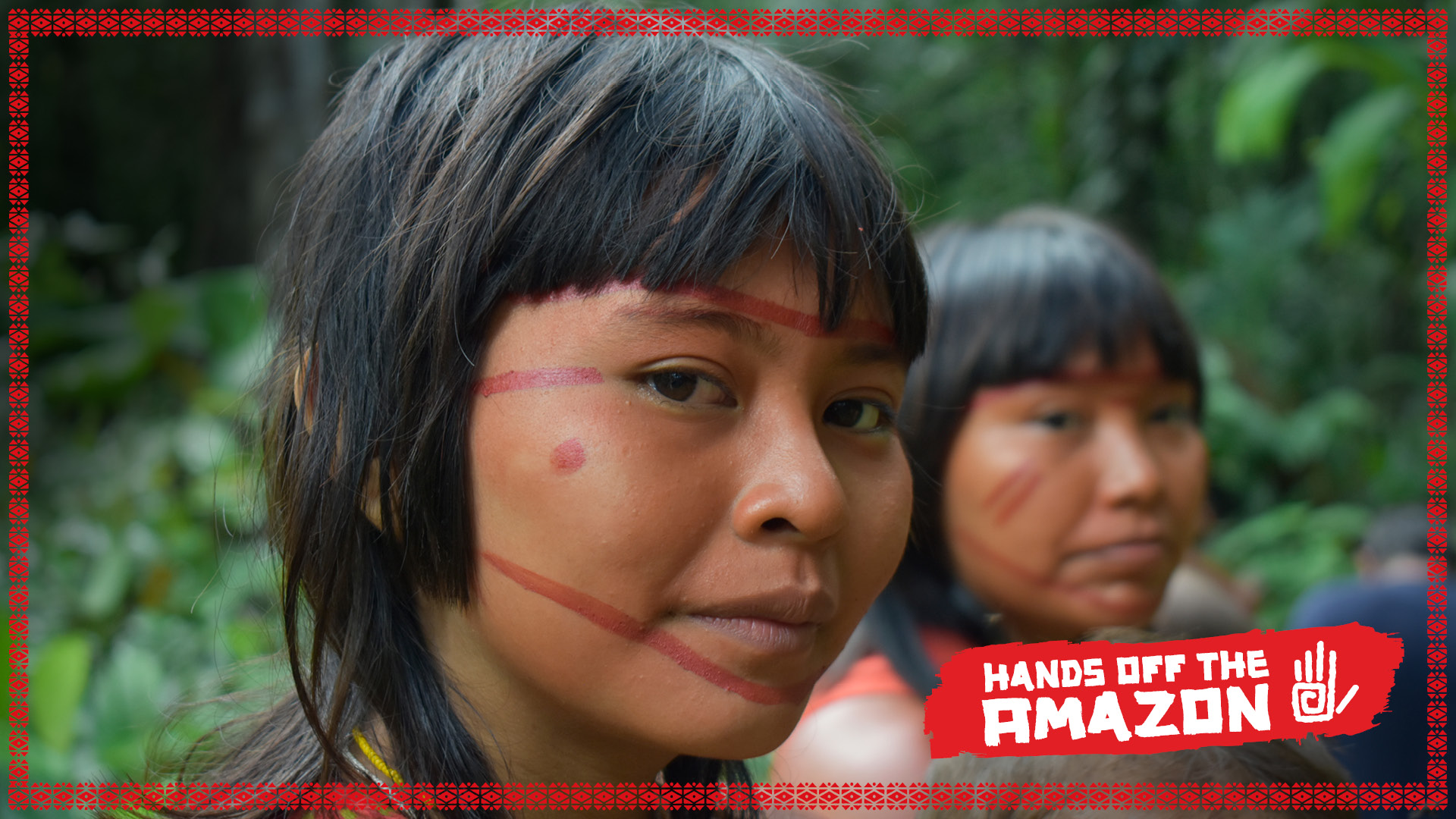
Please help us by making a donation so that indigenous communities in the Brazilian Amazon can preserve the rainforest and exercise their right to self-determination.
Switzerland and the Free Trade Agreement with Mercosur
While President Bolsonaro's rhetoric and politics spur on the exploitation of nature and indigenous communities, European countries are also responsible as buyers of Brazilian products: Switzerland has also imported feed, beef, gold and palm oil from Brazil in recent years, including from the Amazon region. Now the EFTA countries want a free trade agreement with Switzerland and the Mercosur states, including Brazil.
As a member of the Mercosur coalition, the STP, together with other NGOs, demands that such an agreement should contain control mechanisms as well as binding sanction mechanisms with regard to indigenous rights and environmental protection.
In autumn 2019, a delegation of indigenous leaders travelled through Europe to make European countries aware of their responsibilities in trade with Brazil. The STP has accompanied the delegation in Switzerland. It supports its appeal to Switzerland to take measures and to promote fair and sustainable economic relations.
Cocoa project against illegal gold mining – a perspective for young Yanomami
The cocoa business provides the young Yanomami and Ye’kwana members with sustainable economic prospects.
The Yanomami community lives in the largest protected area of the Brazilian Amazon. But their way of life is threatened, as illegal gold diggers are penetrating further and further into the rainforest. When they extract gold, they destroy the habitat of indigenous communities, devastate the rainforest and poison the environment and people with mercury.
To date, there are an estimated 10,000 illegal gold miners in the Yanomami area. The monthly turnover in the gold business in this area alone is around 7.7 million Swiss francs. The fast money also tempts young members of the Yanomami community to try their luck in the gold business.
In order to prevent this and to offer the indigenous people a sustainable income opportunity, the STP and its partner organisation "Instituto Socio Ambiental" are training selected communities in the cocoa industry. The young Yanomami learn how to reforest cocoa trees, to care for them and to process the harvest afterwards. The first 1000 chocolate bars from the first cocoa harvest were presented in mid-December 2019. By 2021, 7,000 trees should have been planted.
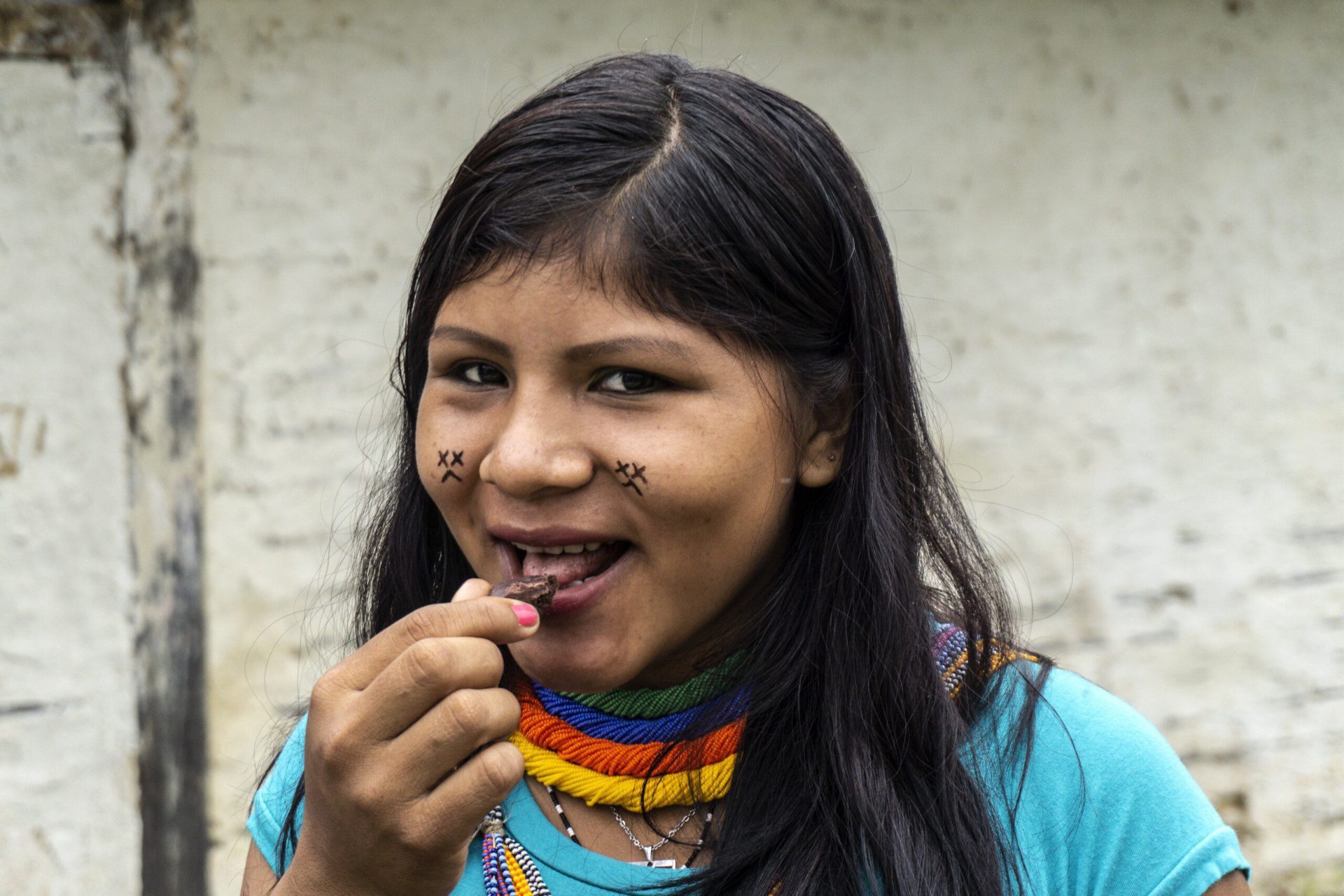
Alternatives to gold mining: The project enables young Yanomami to earn an income from growing and processing cocoa. Photo: Instituto Socio Ambiental
These are the demands set out by the STP and its partners
- To Switzerland: For an import ban on products whose production violates the rights of indigenous communities or damages the environment
- To Switzerland: a free trade agreement between Switzerland (within the framework of the EFTA states) and Brazil (within the framework of the Mercosur states), which contains effective clauses on the protection of the environment and human rights
- To Brazil: the protection of the rights of indigenous peoples under the constitution, and the recognition, in particular, of the right to self-determination and the right to territory
- To all states: the protection of the Amazon and the global climate
Stories
Contact
Contact person at the STP:
Julia Büsser, STP campaign manager
Tel +41 (0) 31 939 00 13
Partner organisations
Advisors
Telma Monteiro: environmentalist and specialist in the analysis of infrastructure projects in the Amazon region
Vinícius da Silva Machado: anthropologist and lawyer
